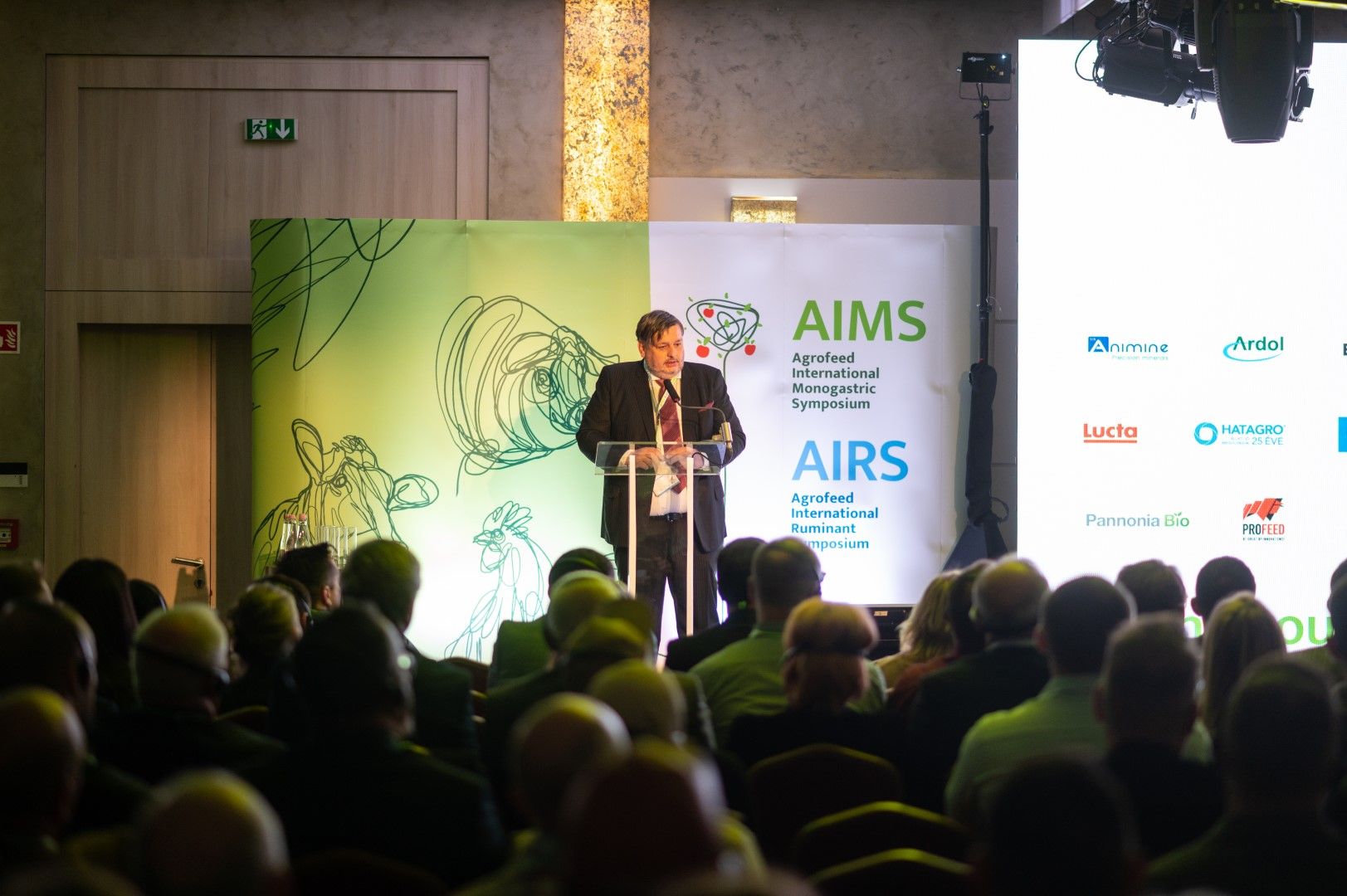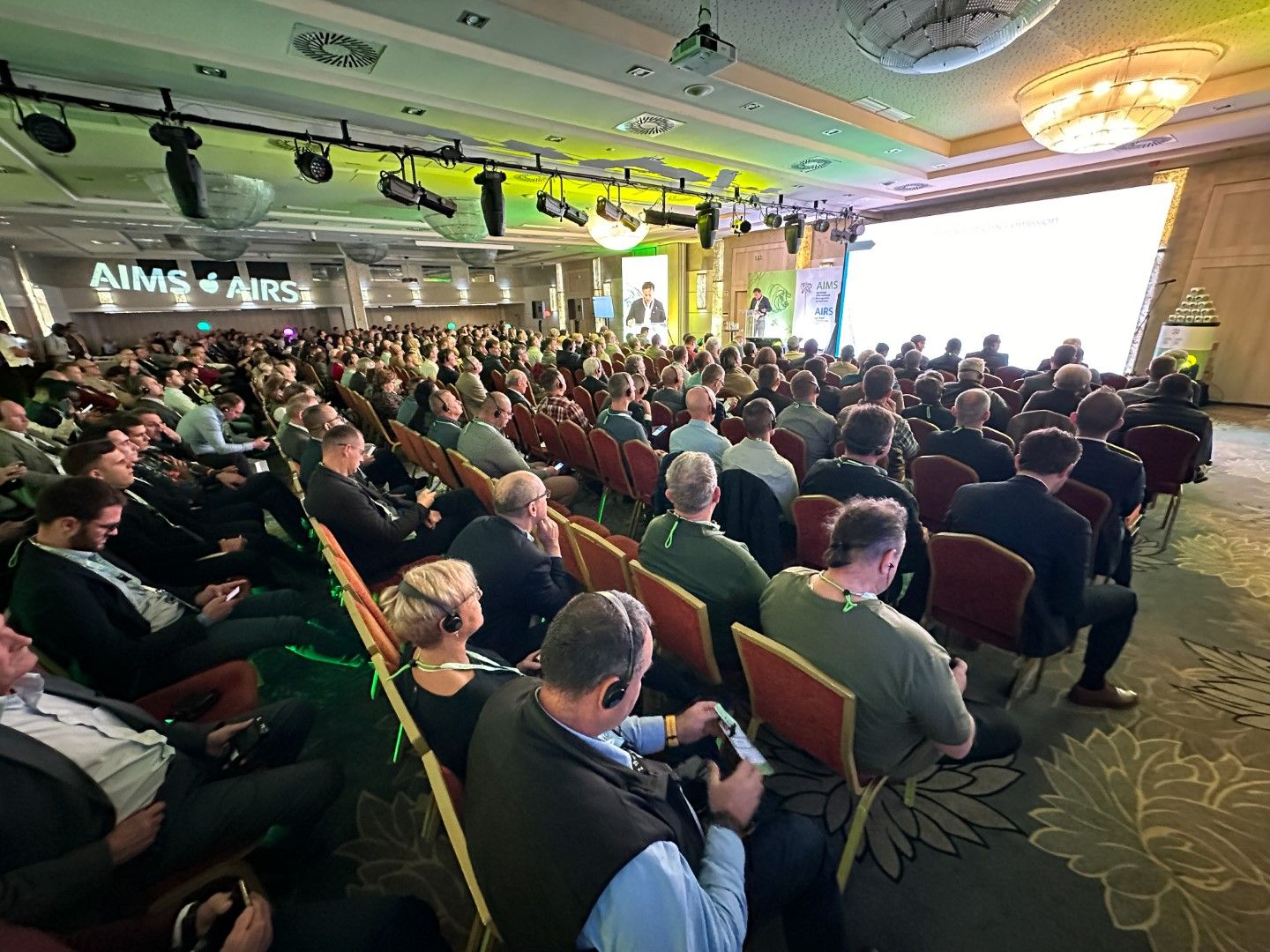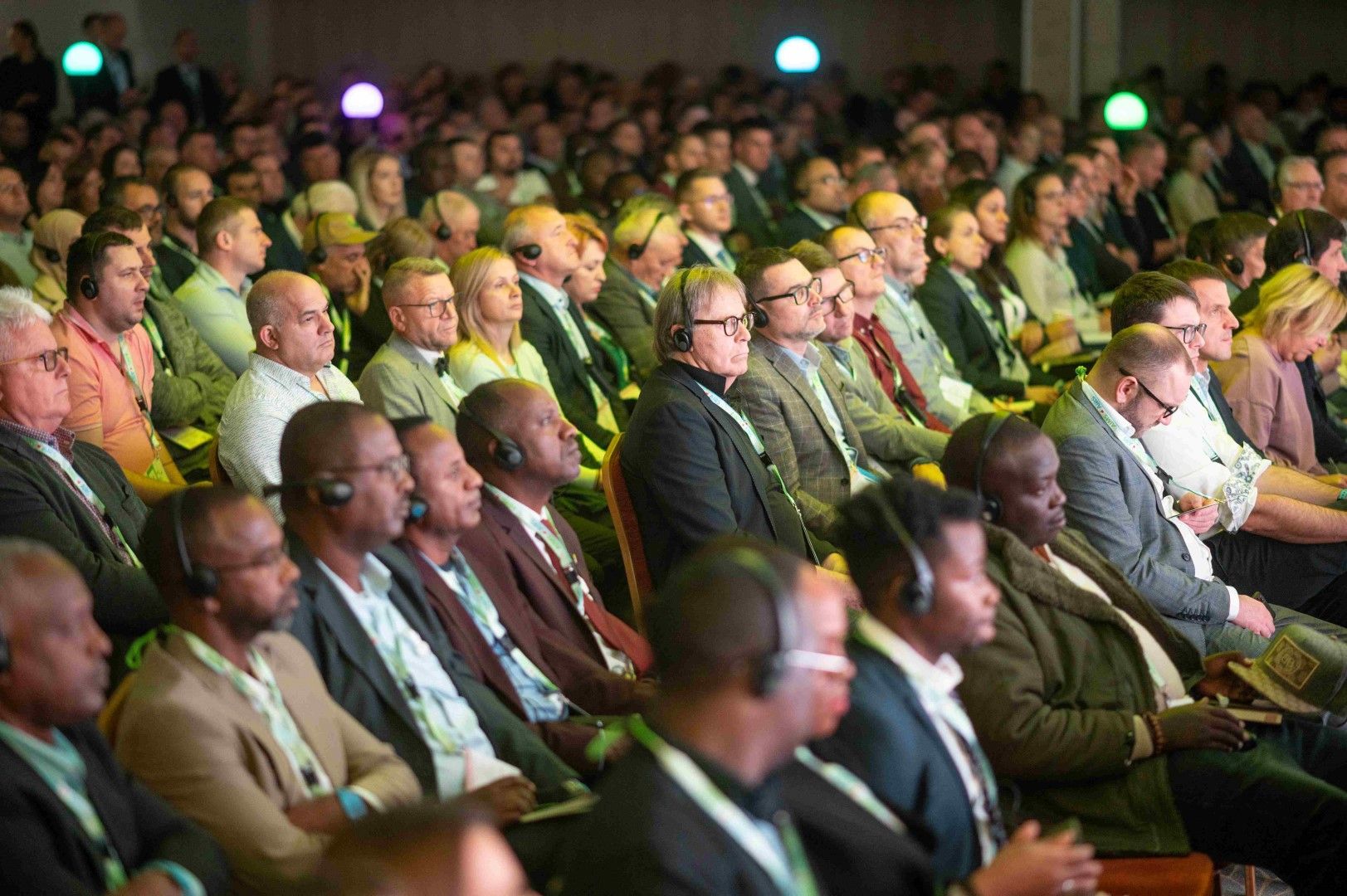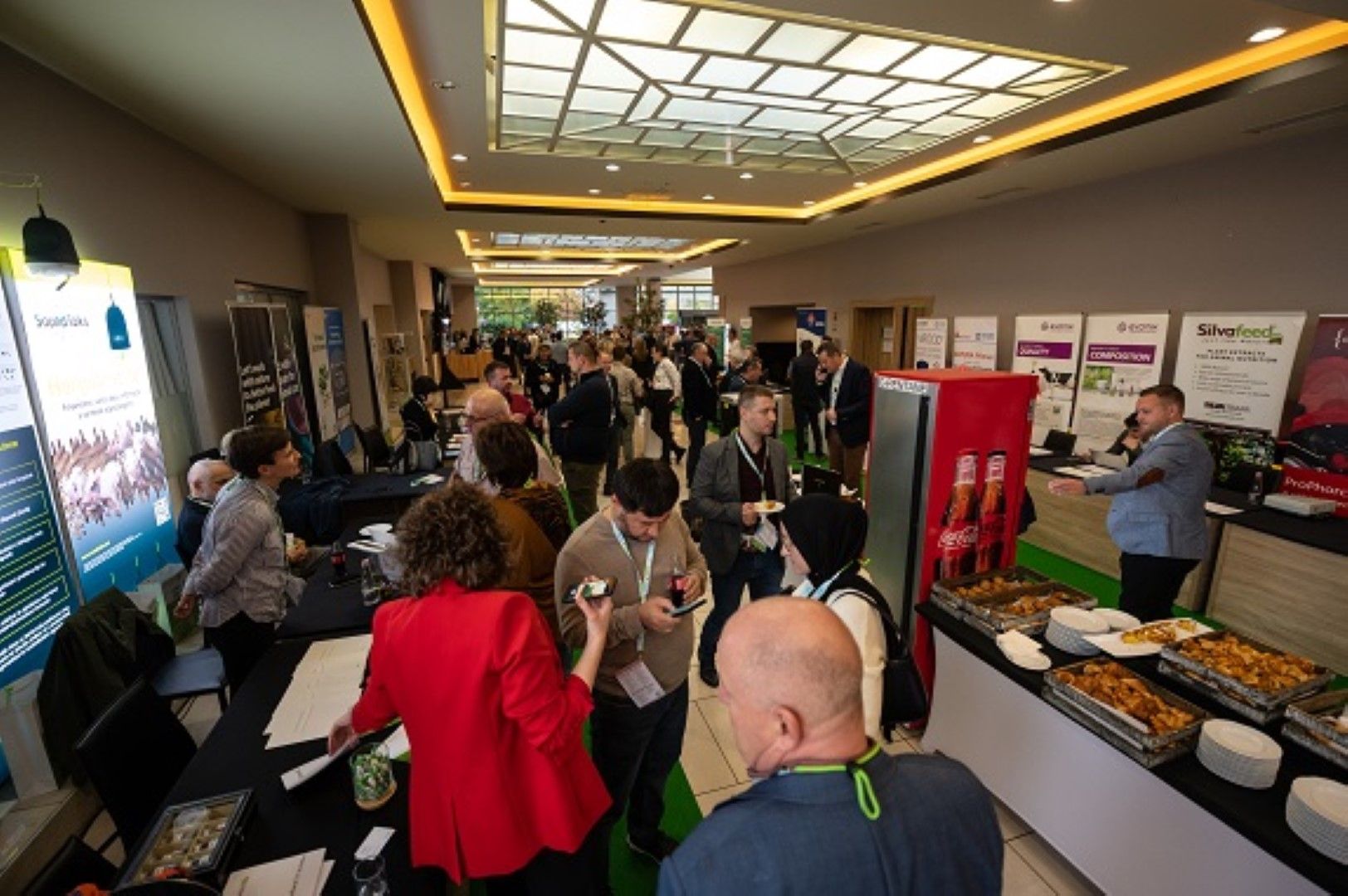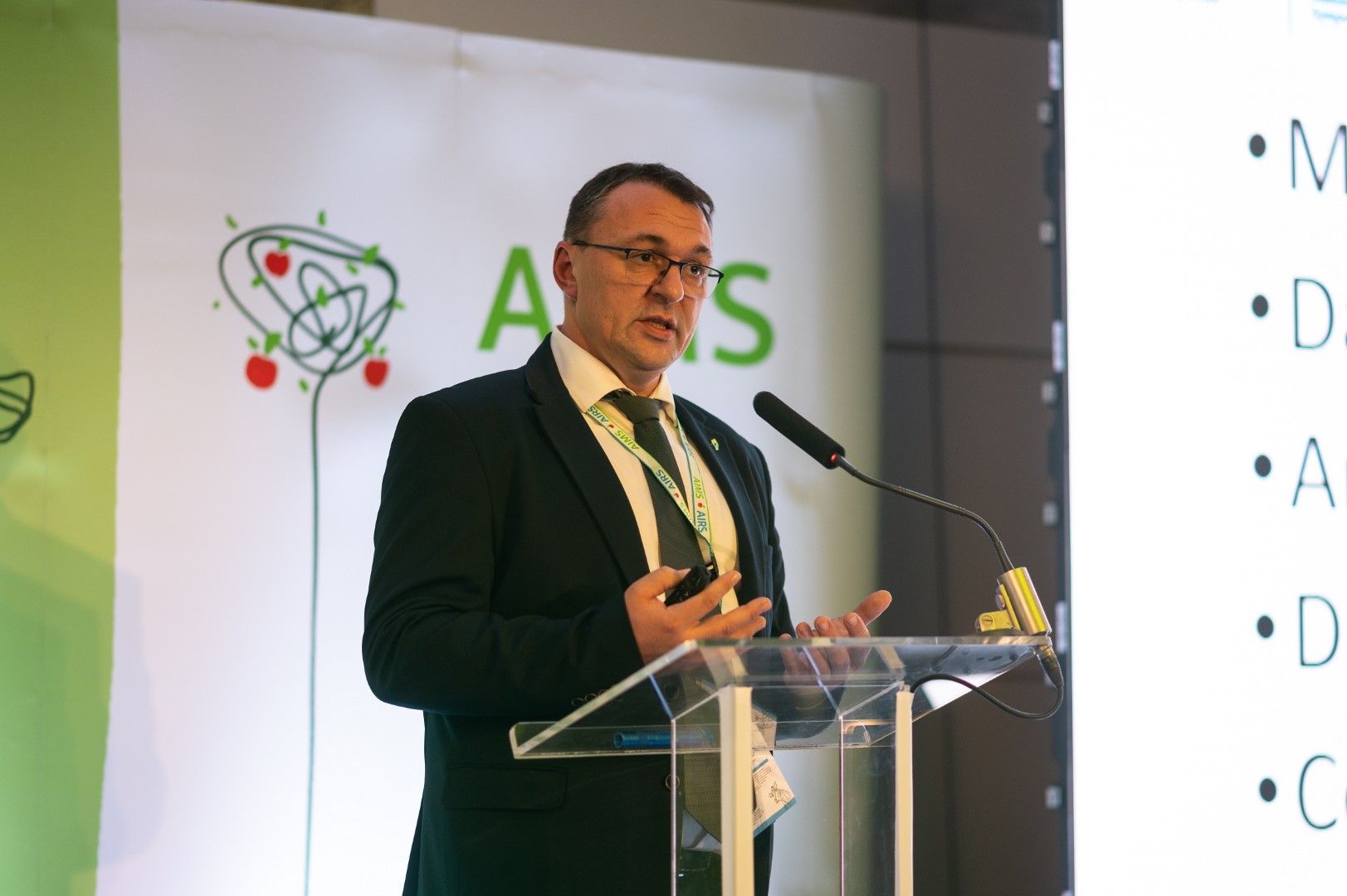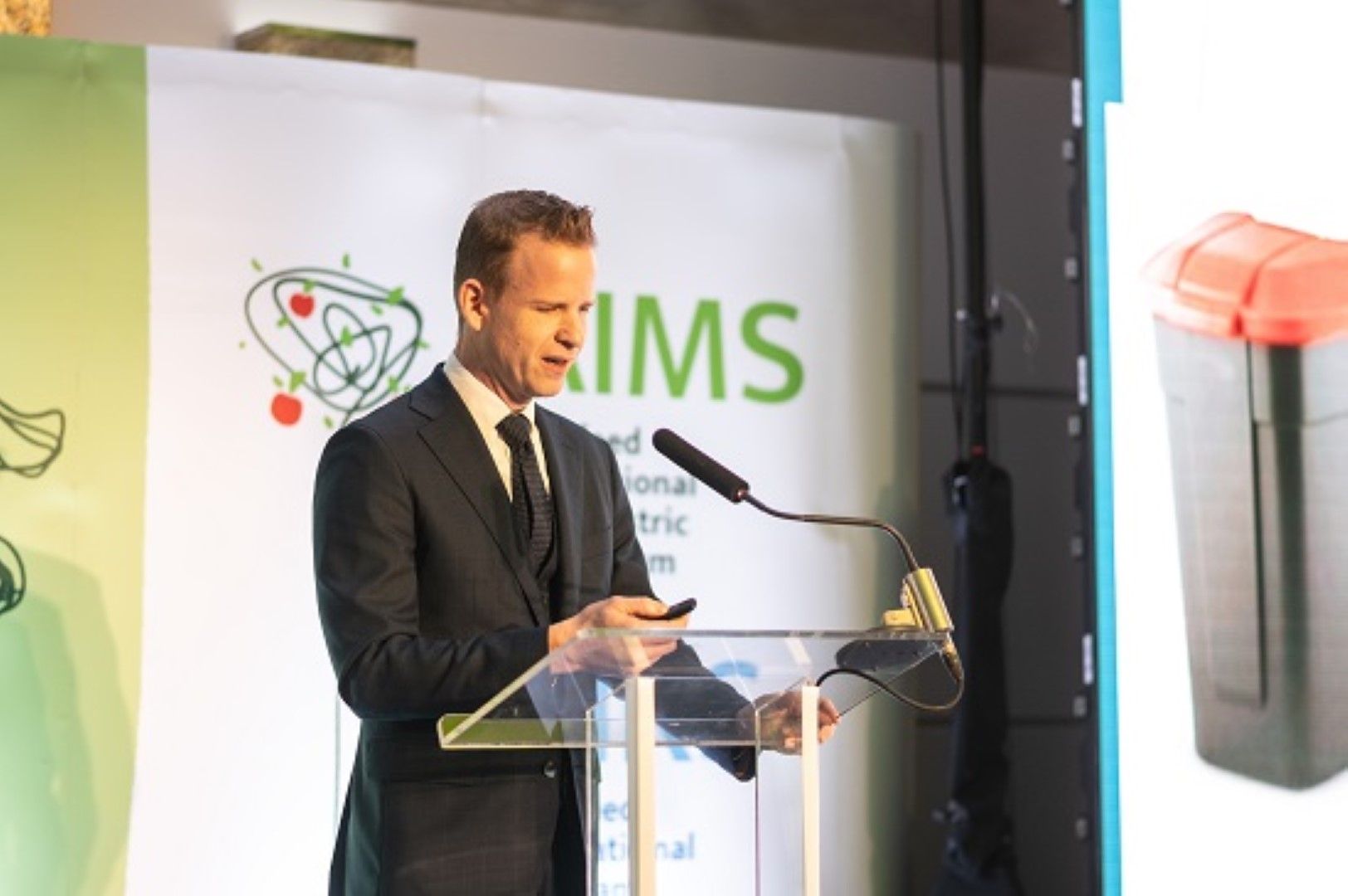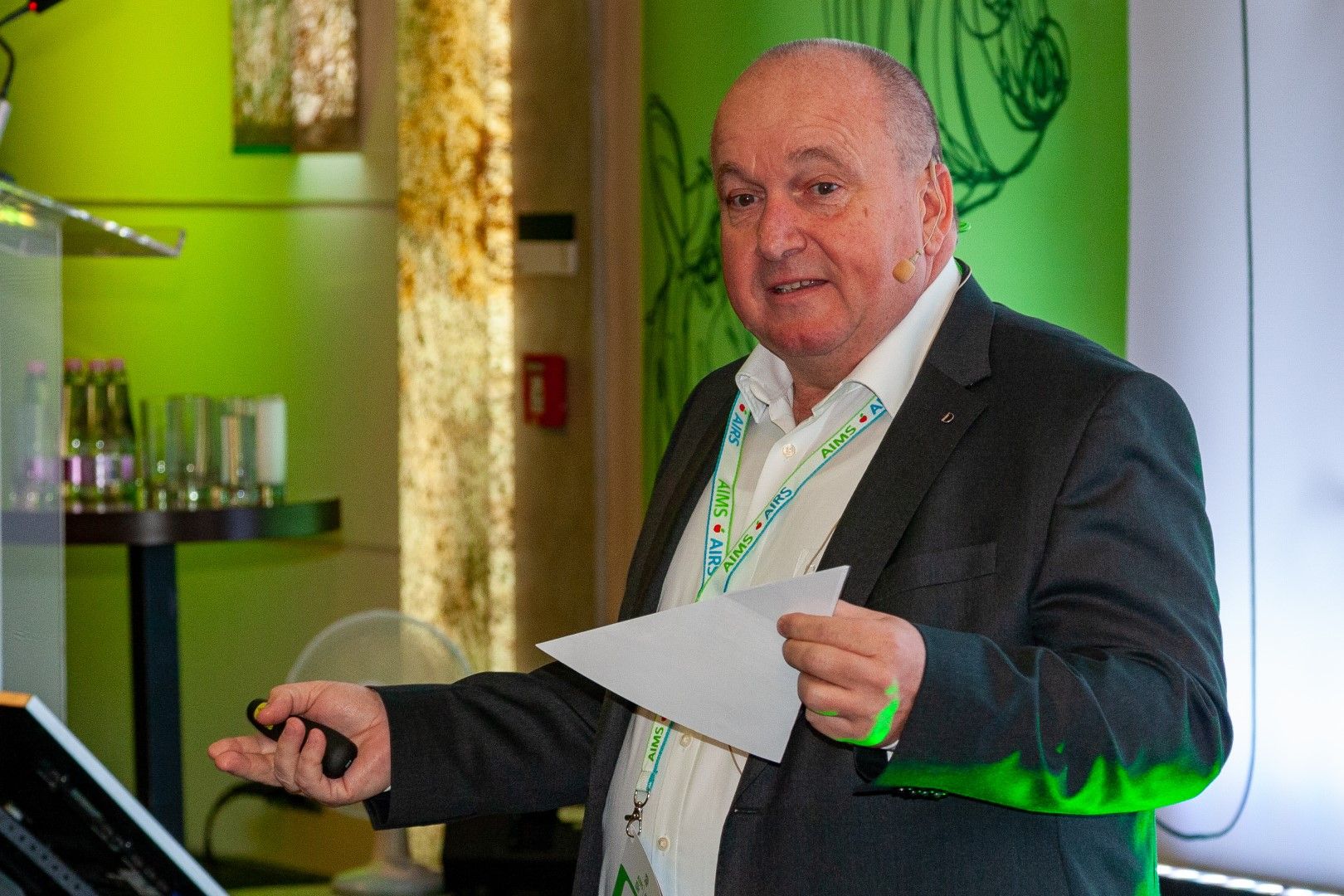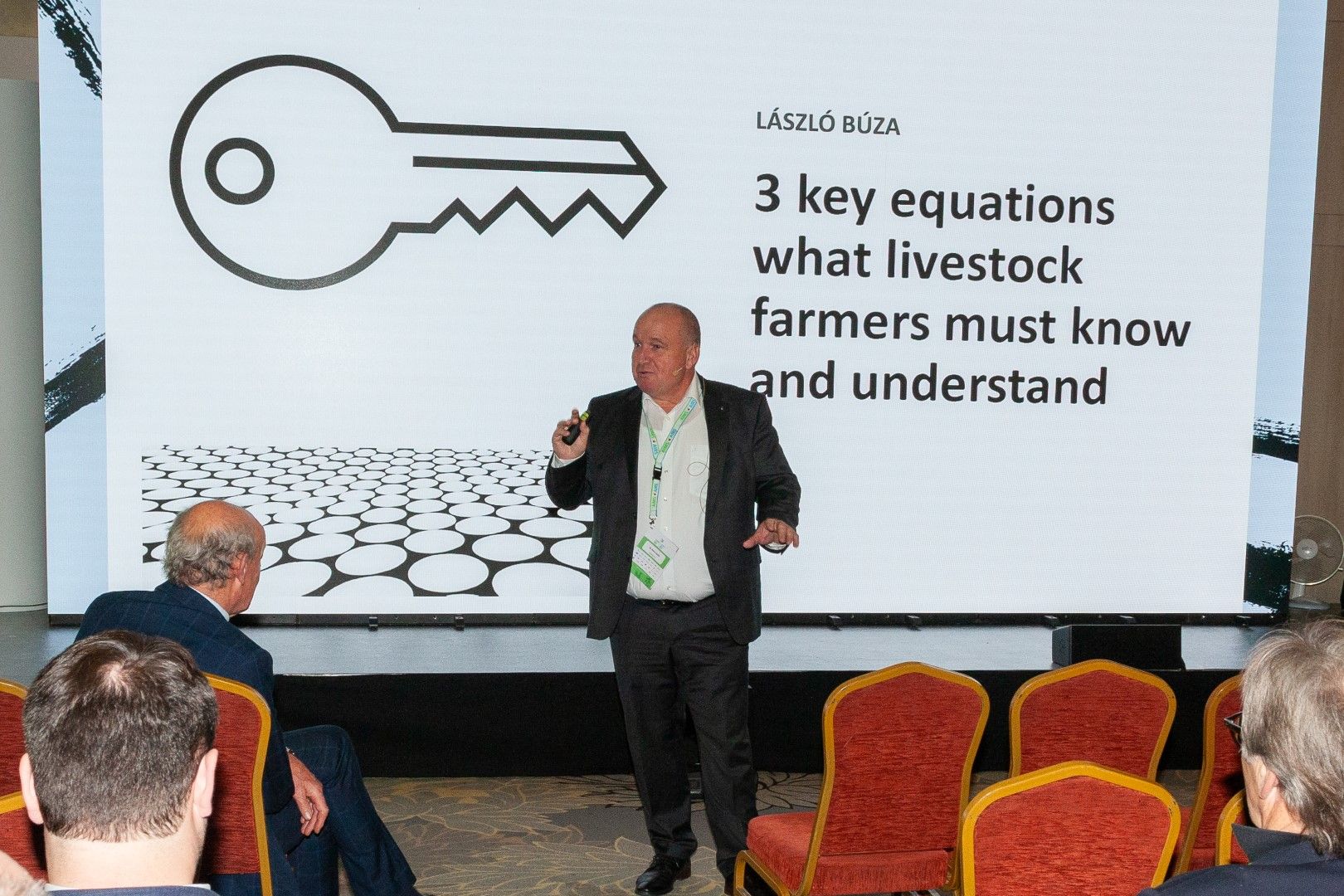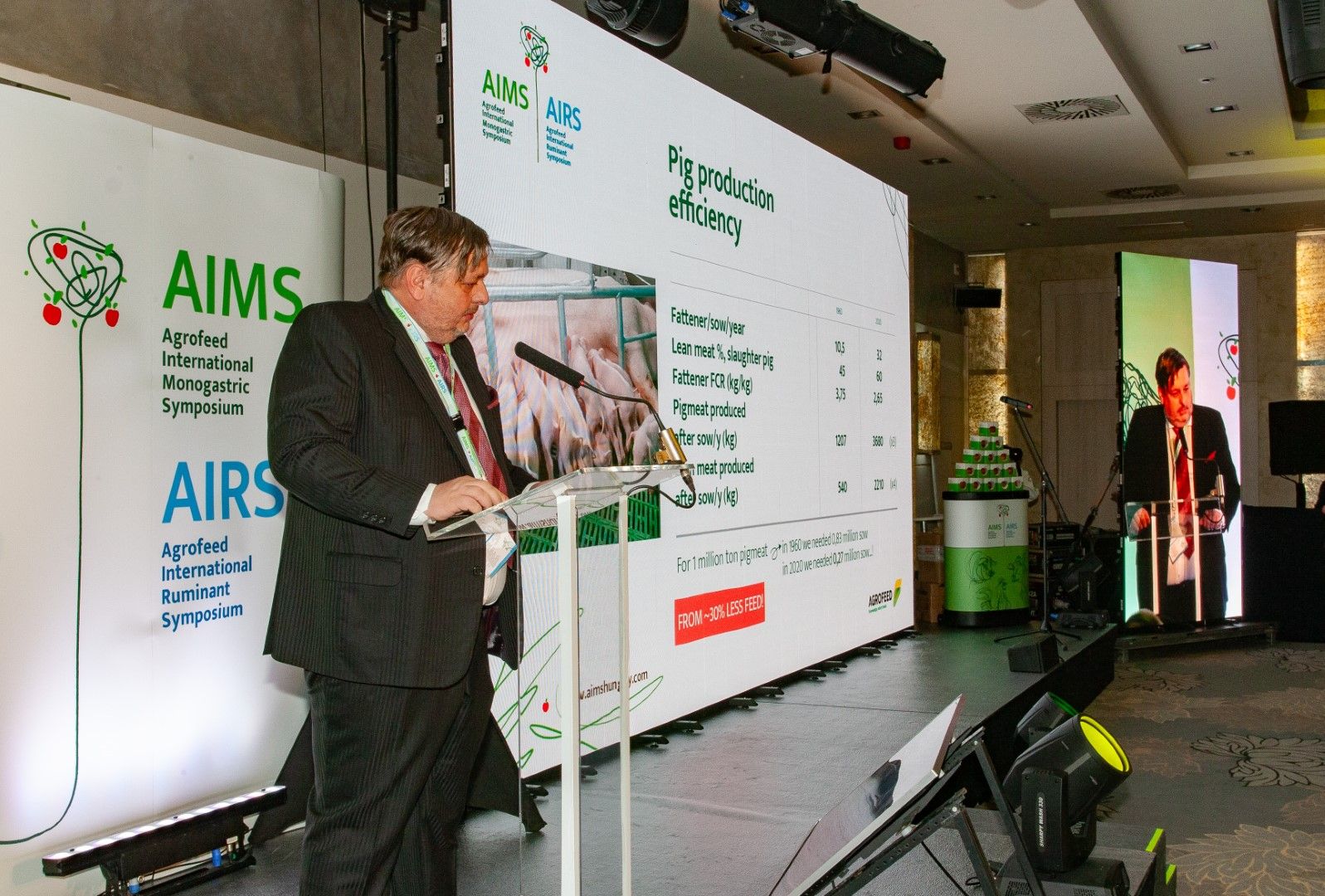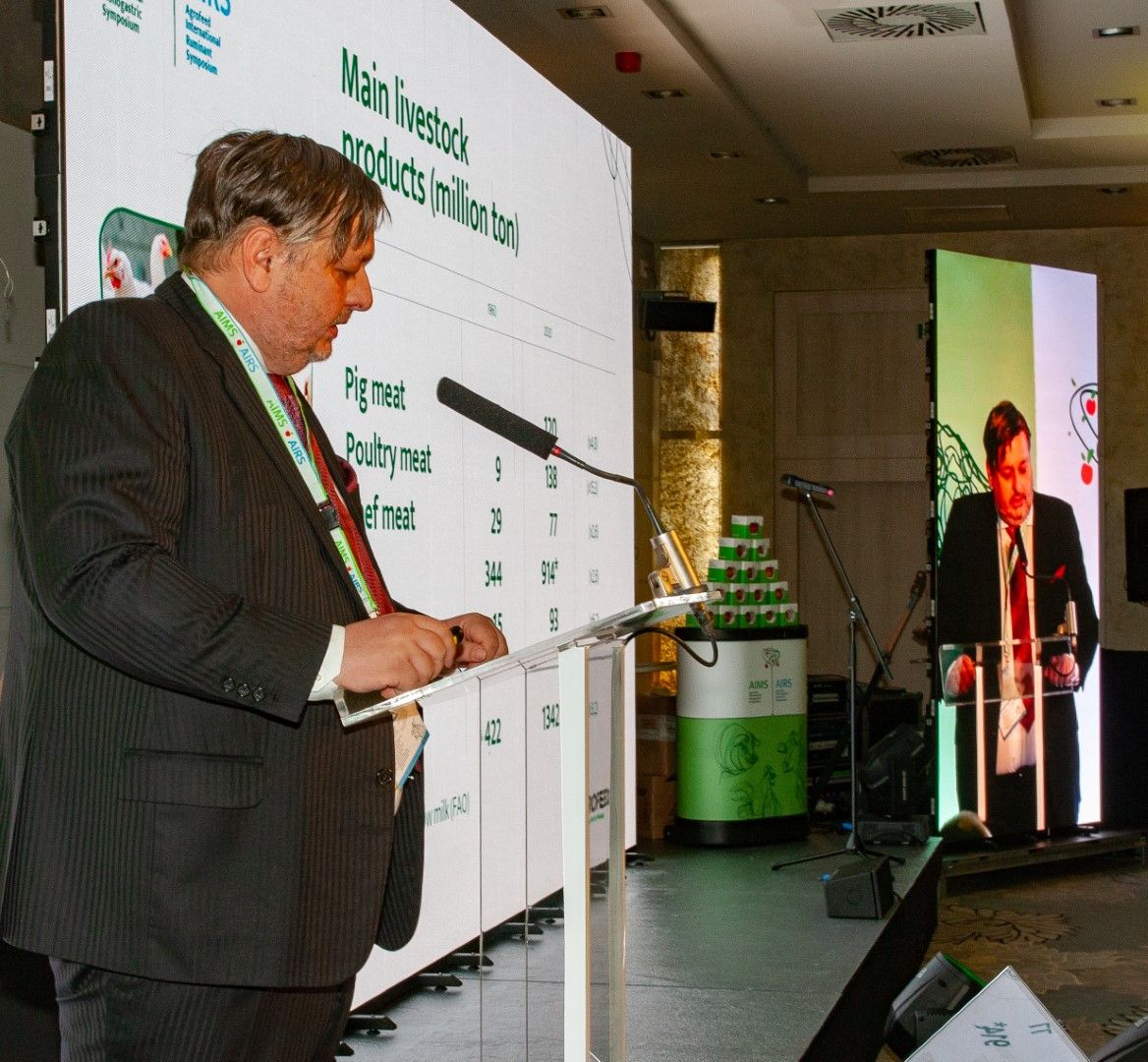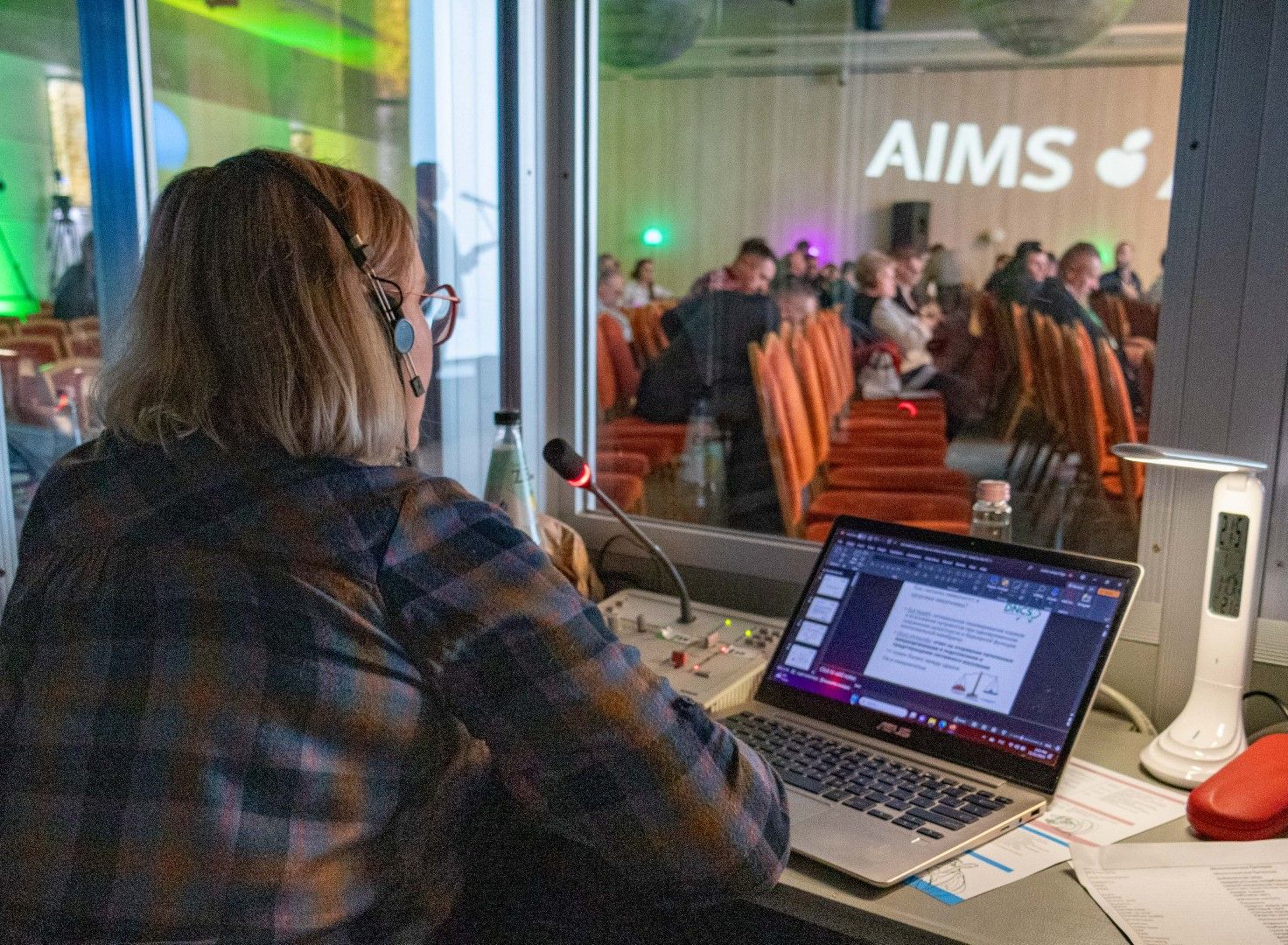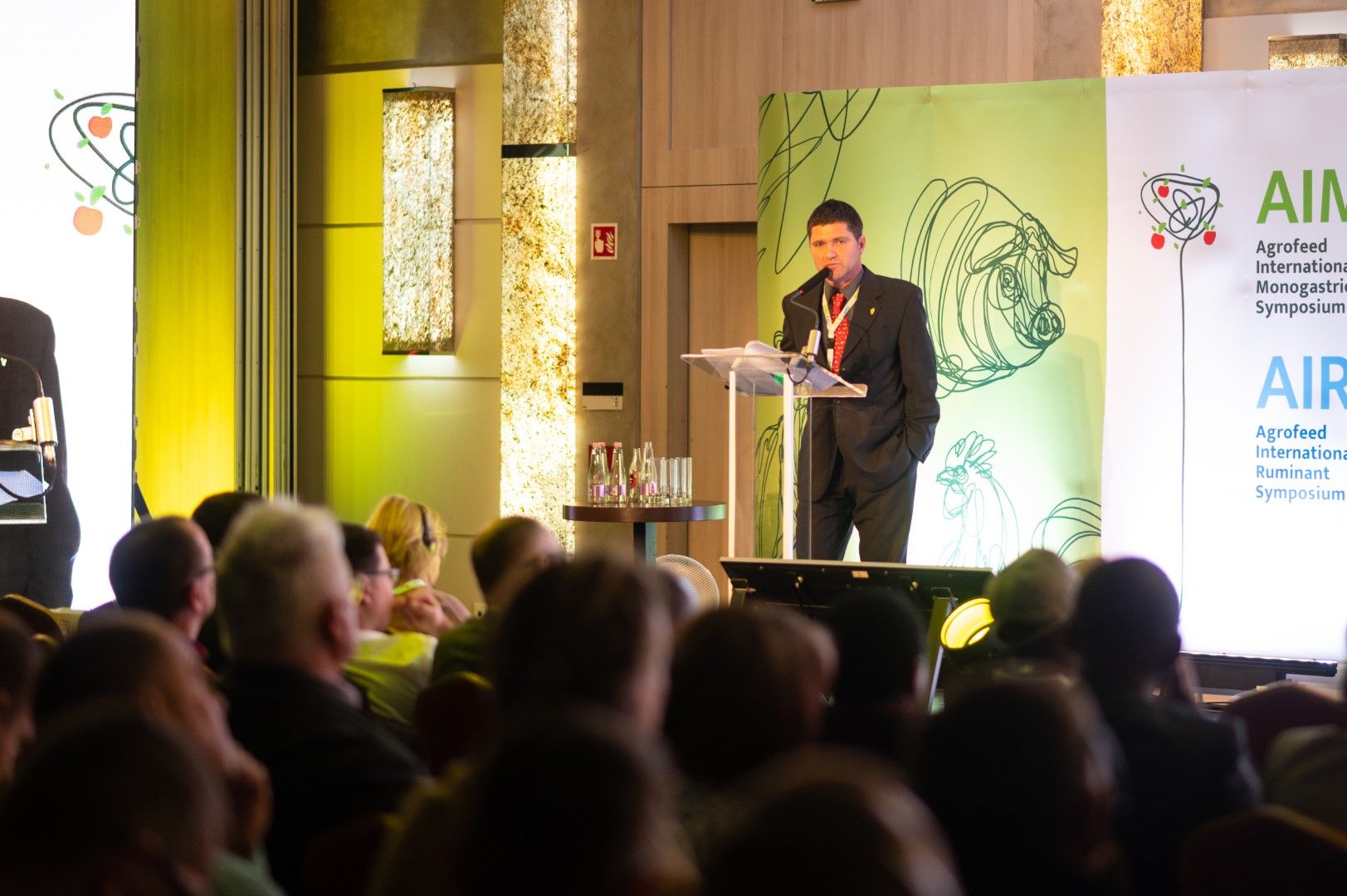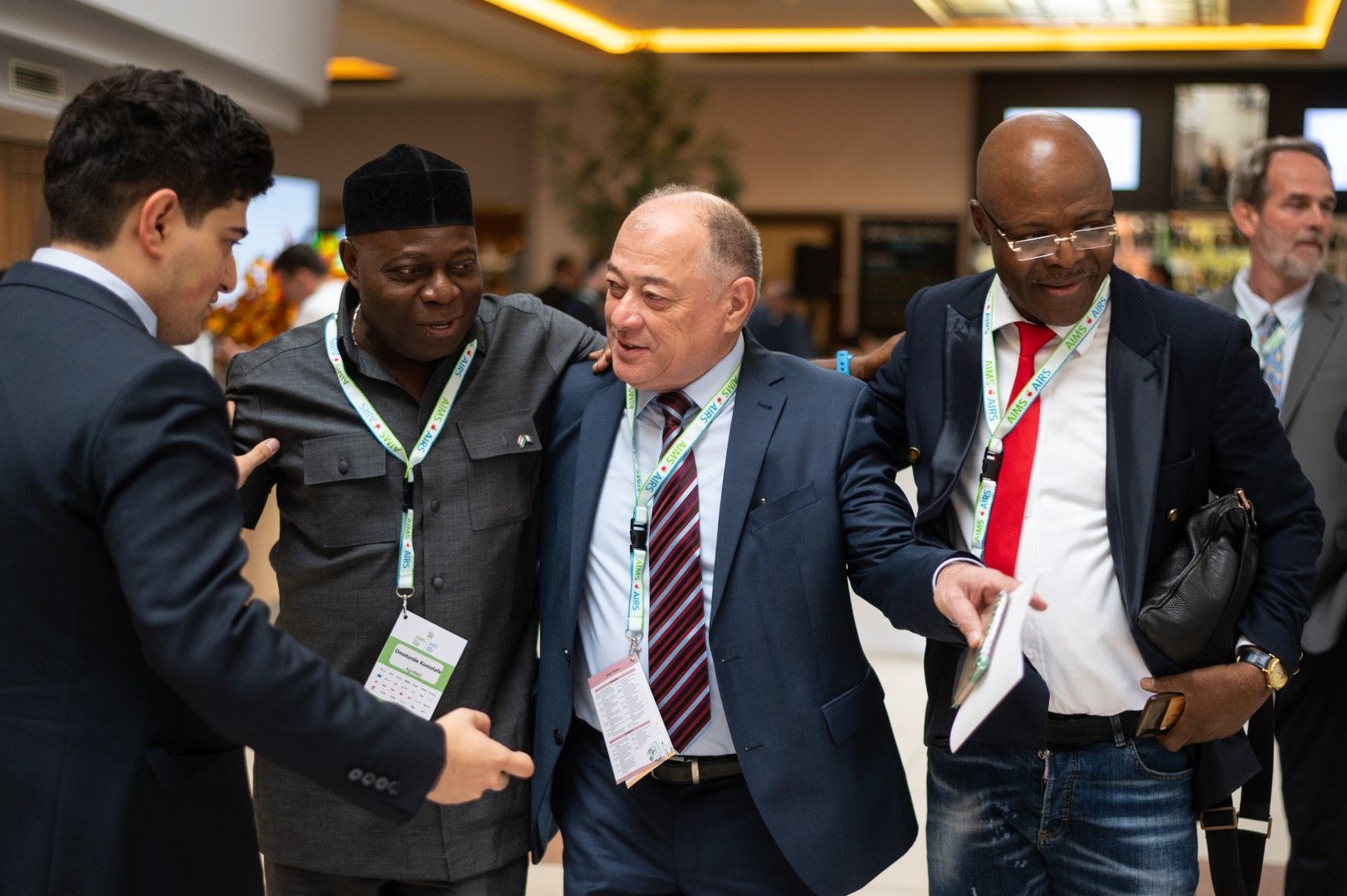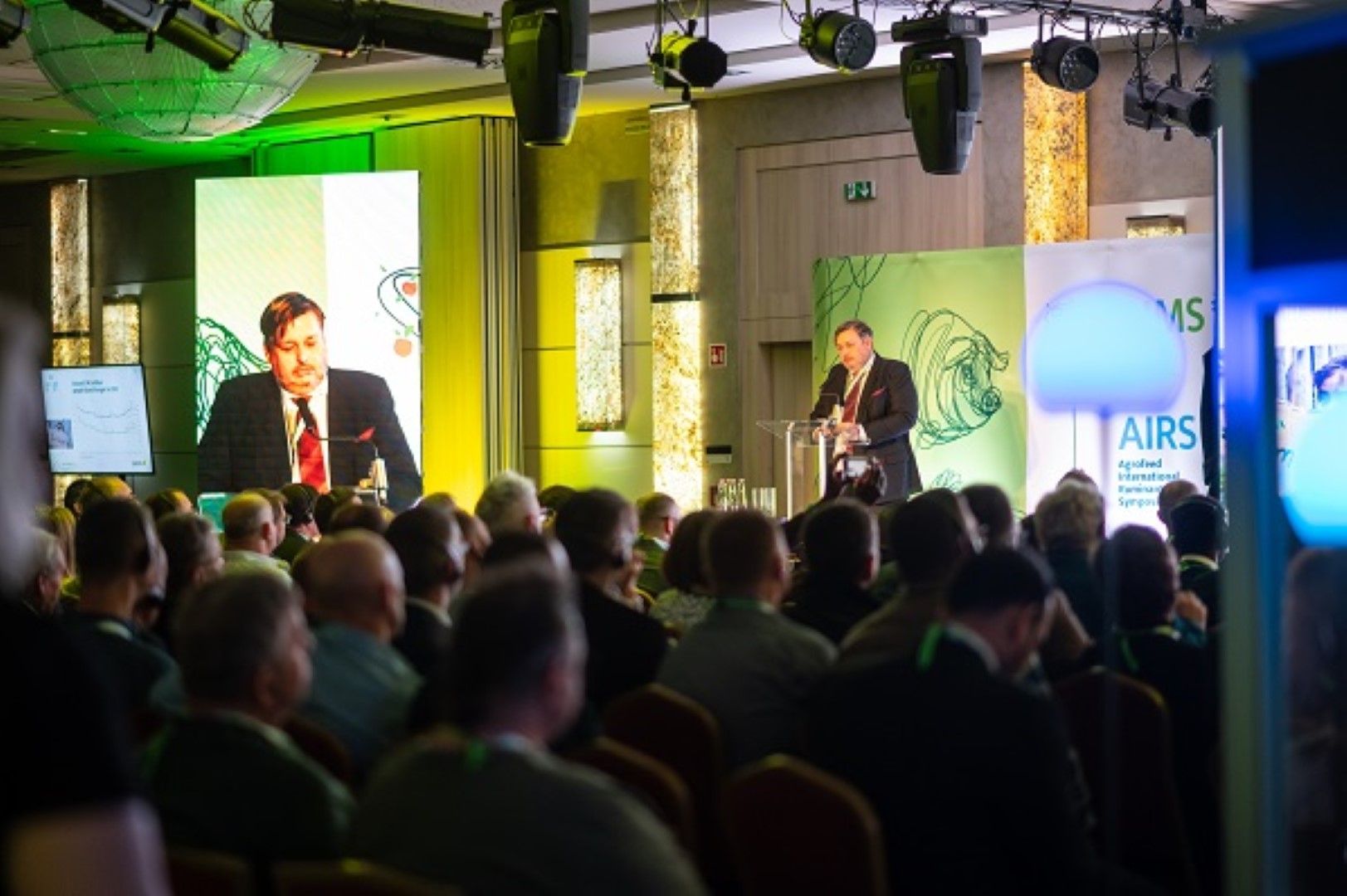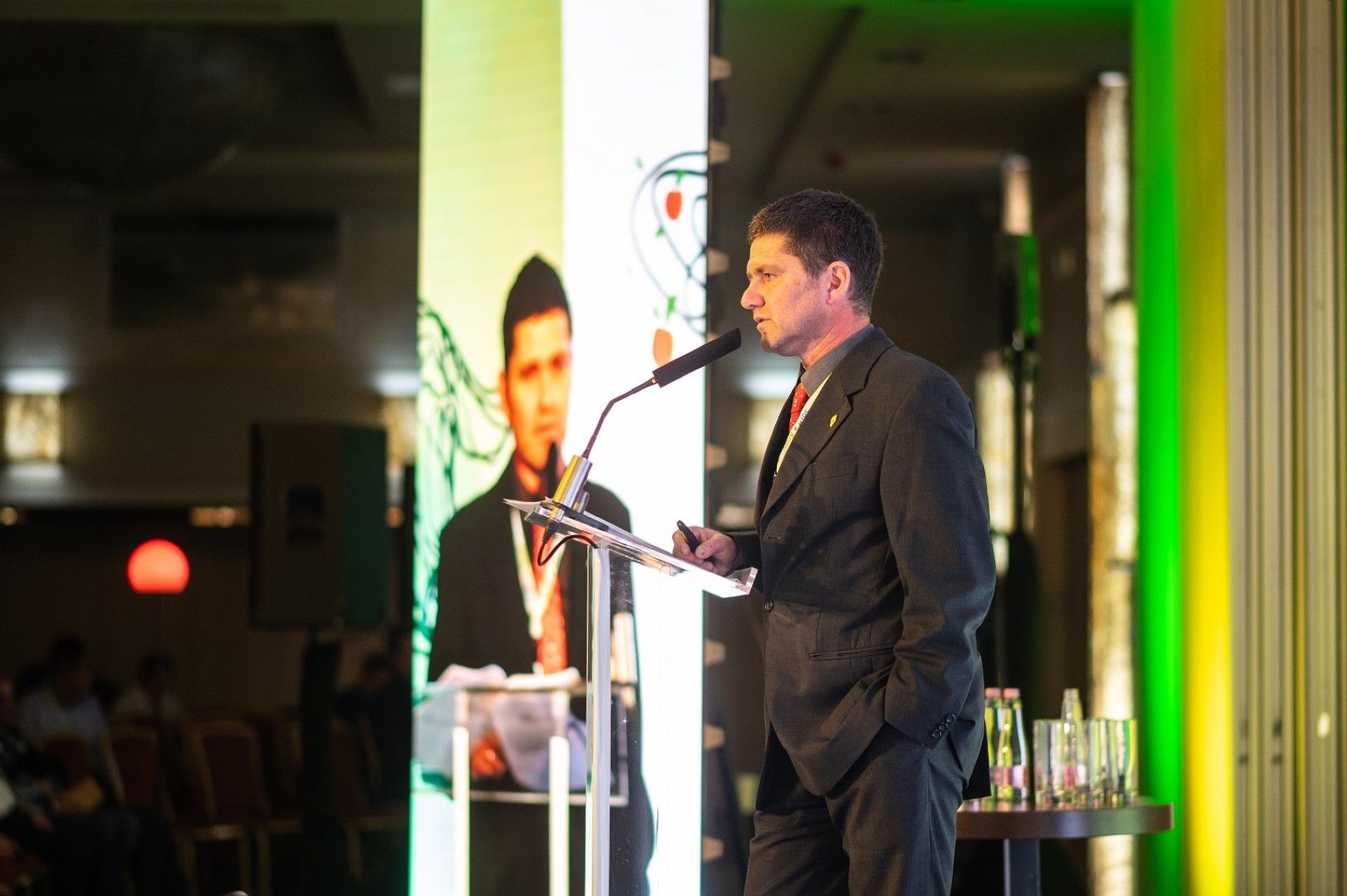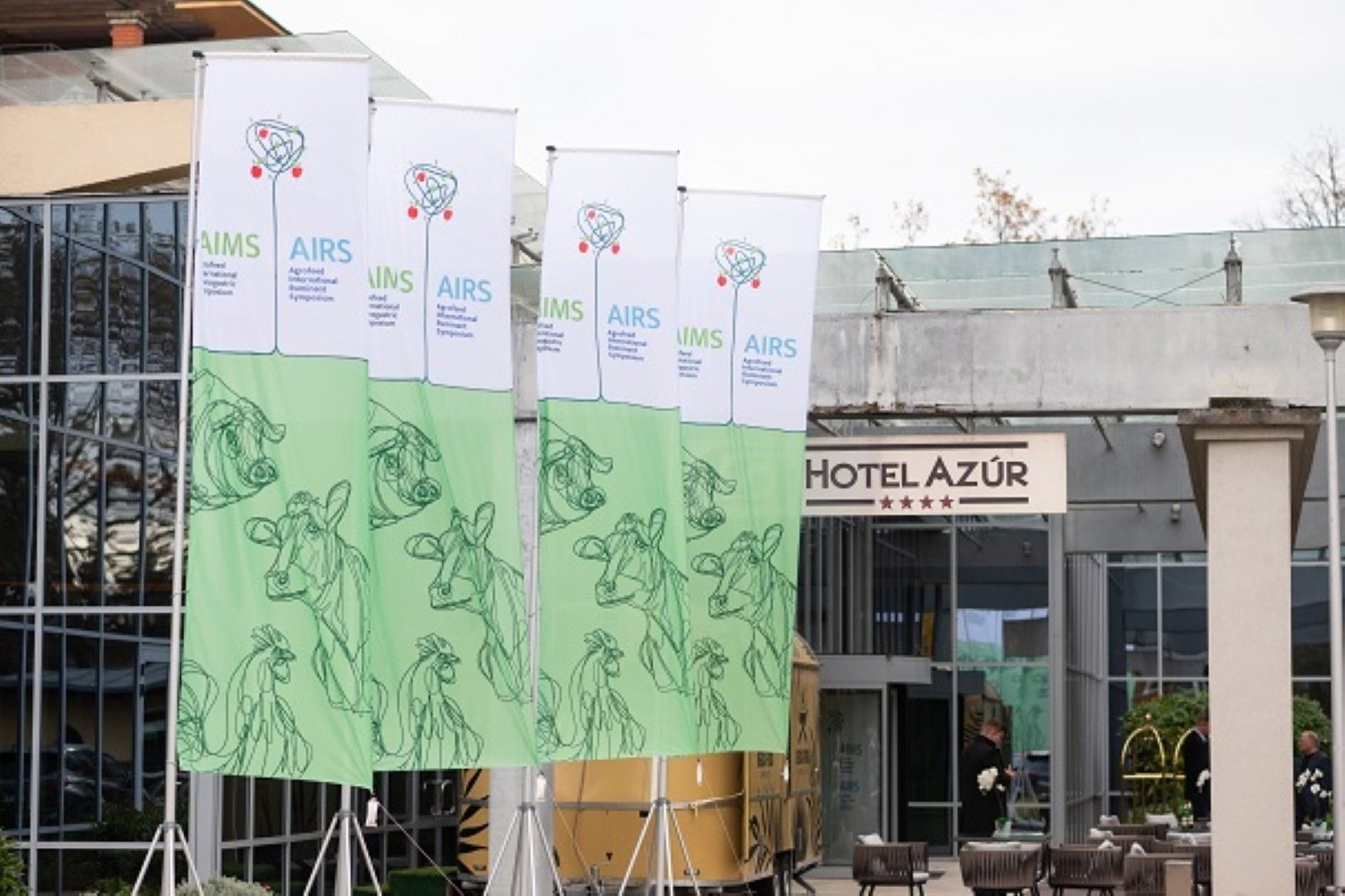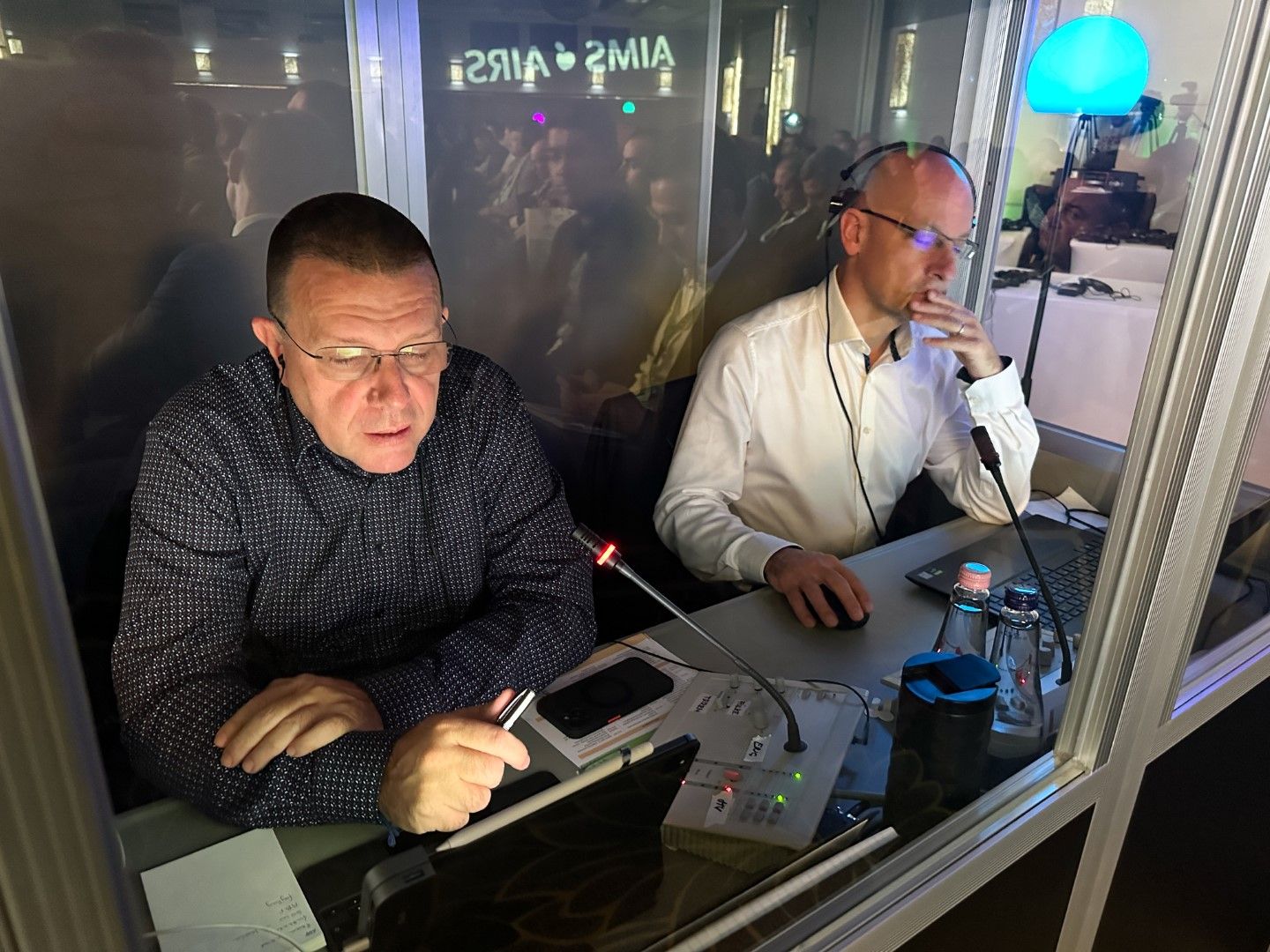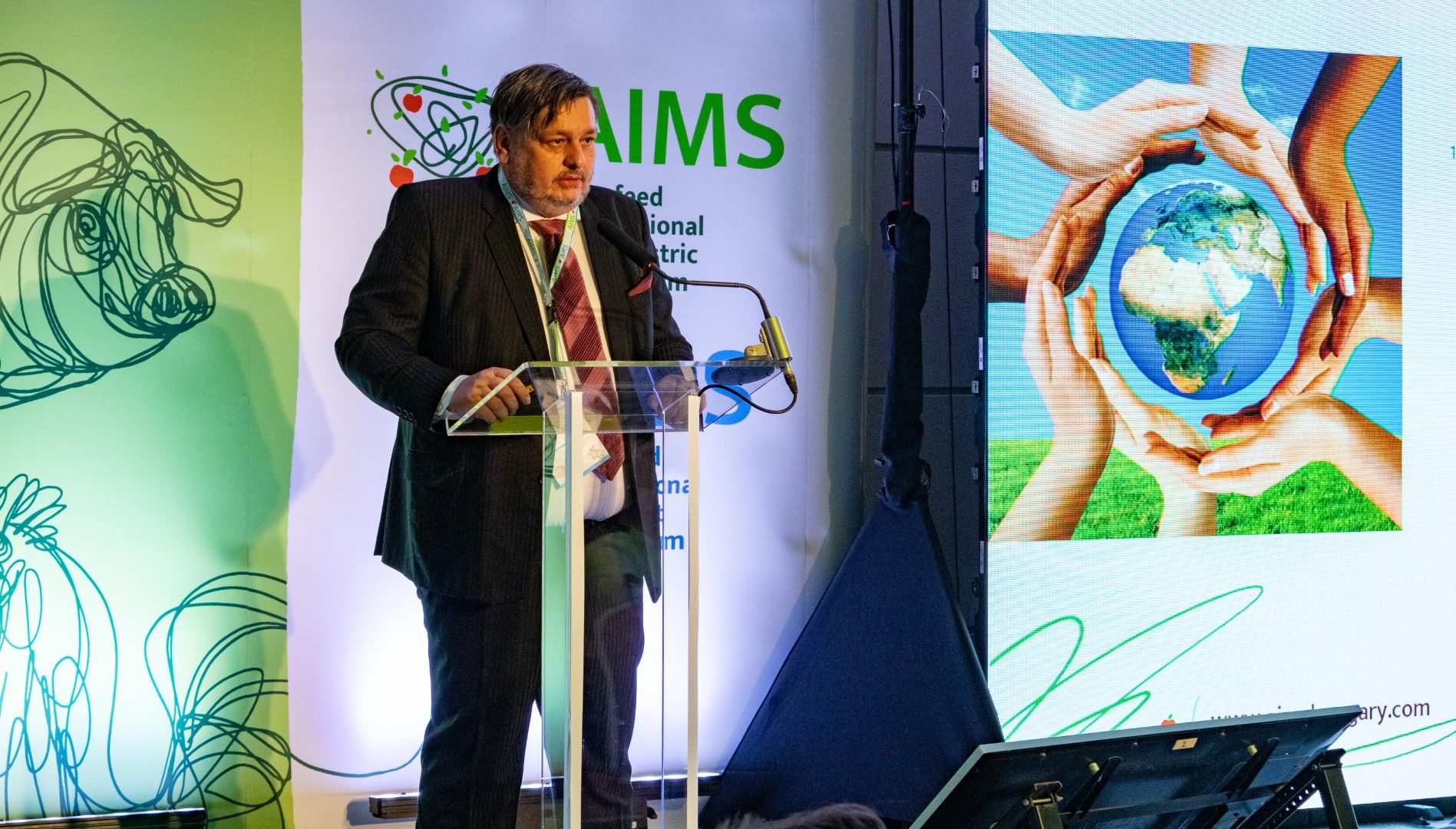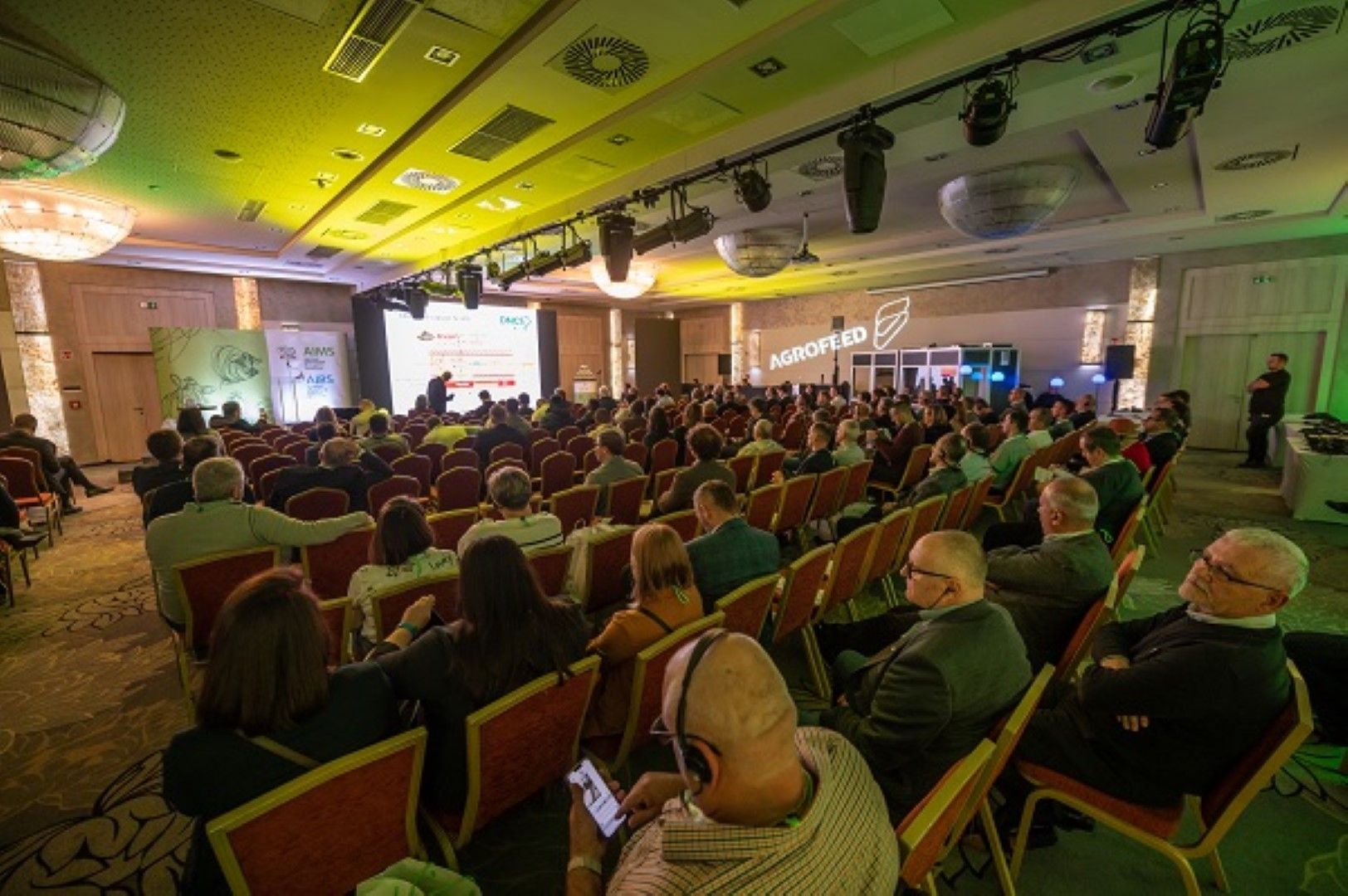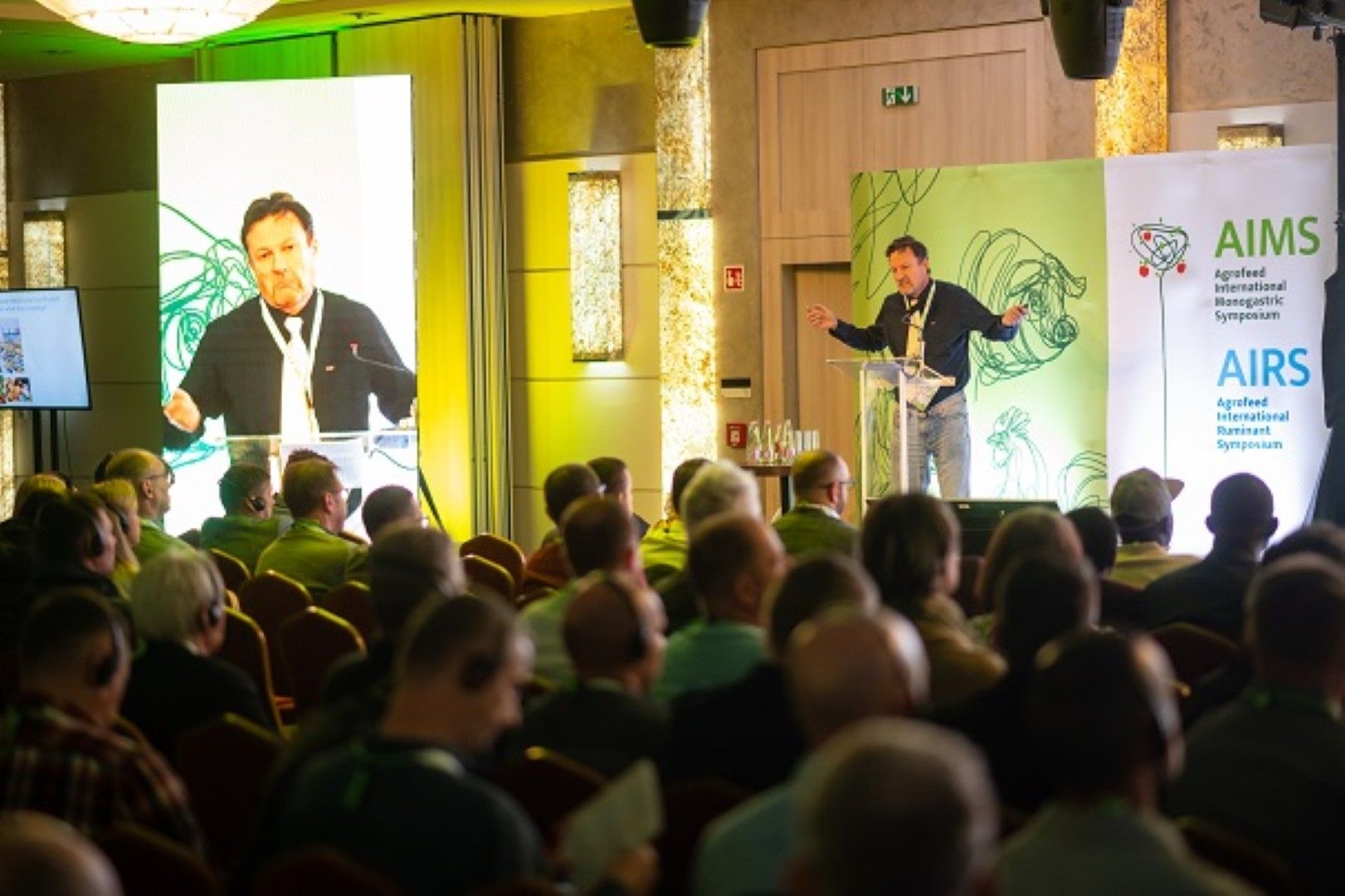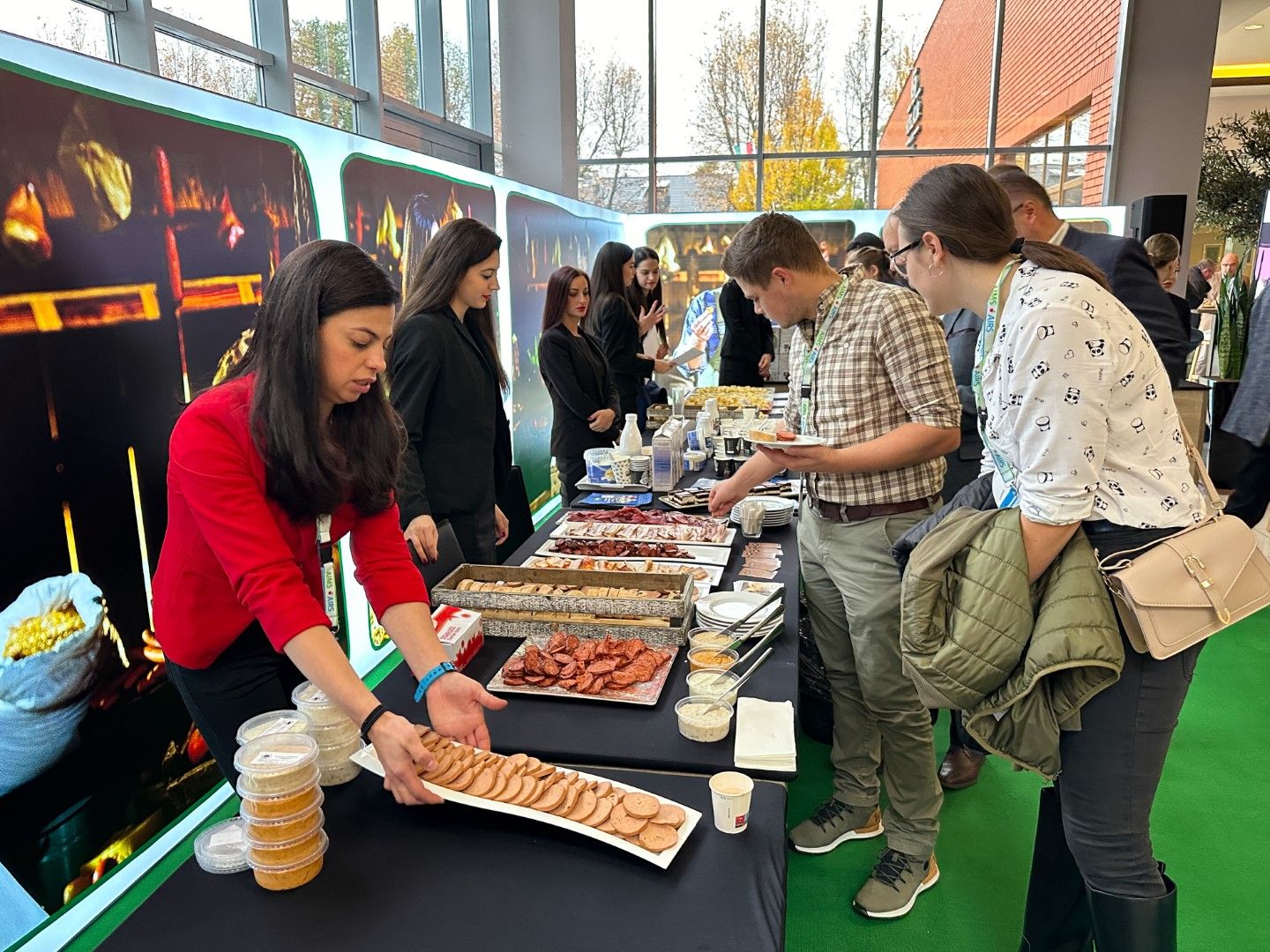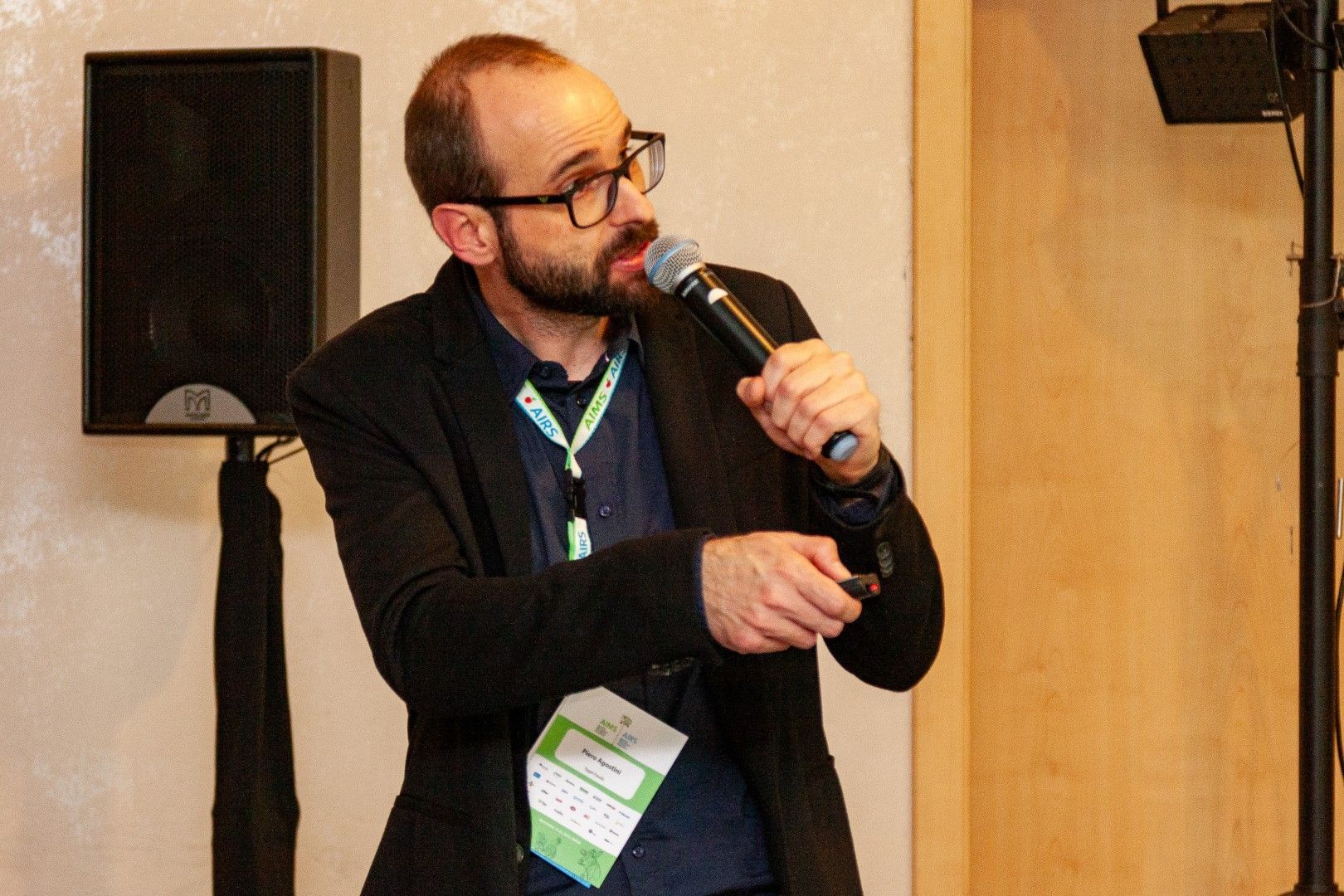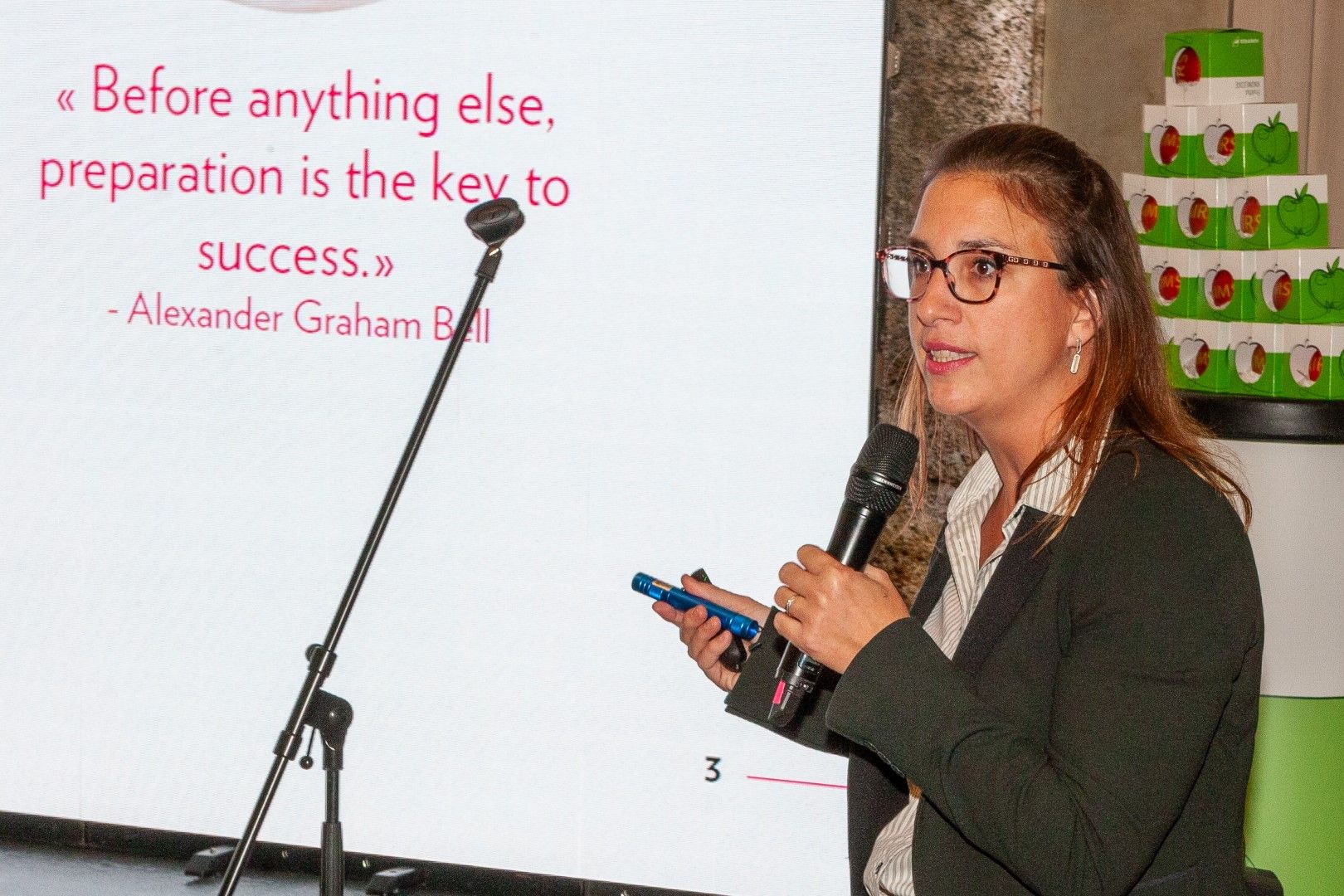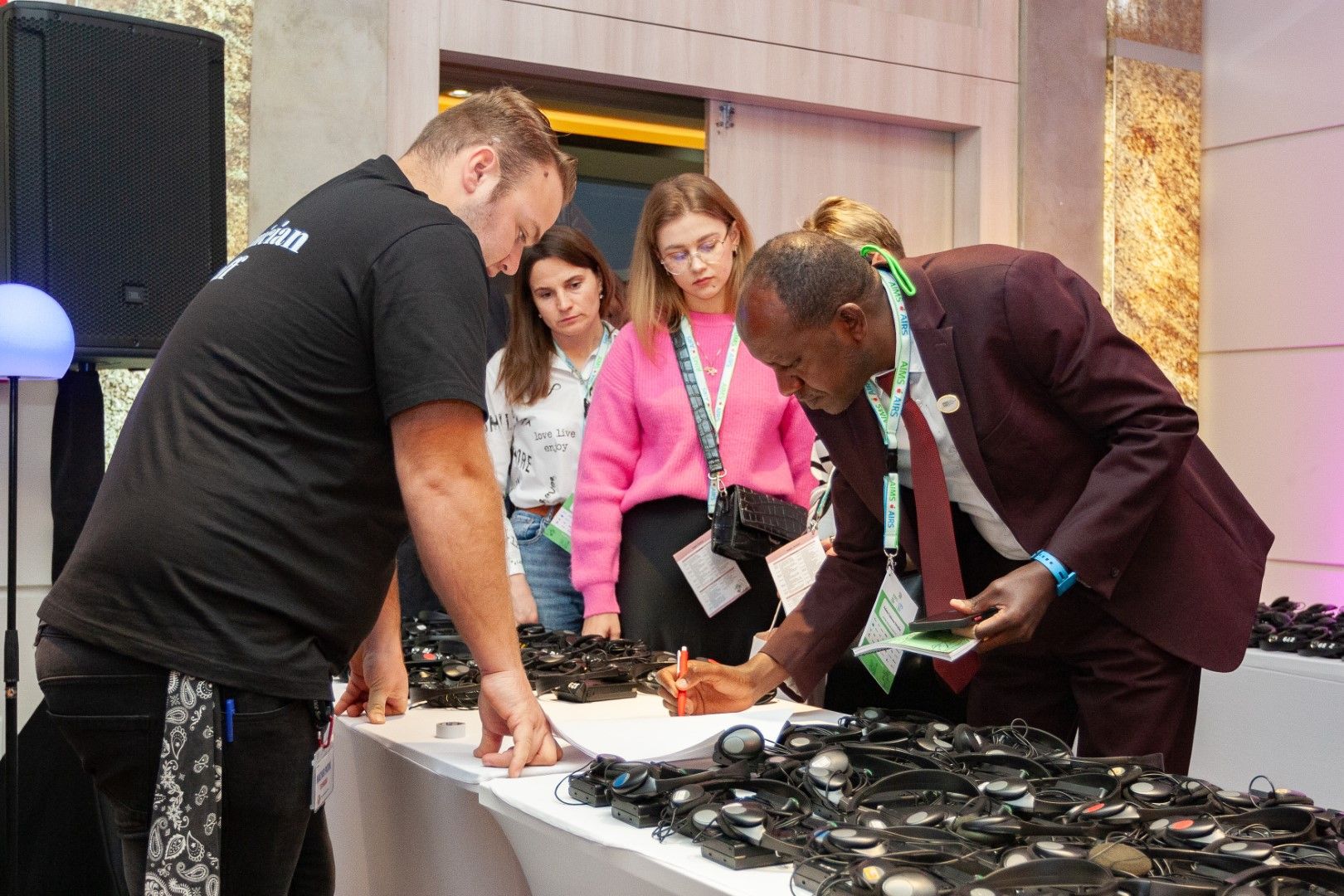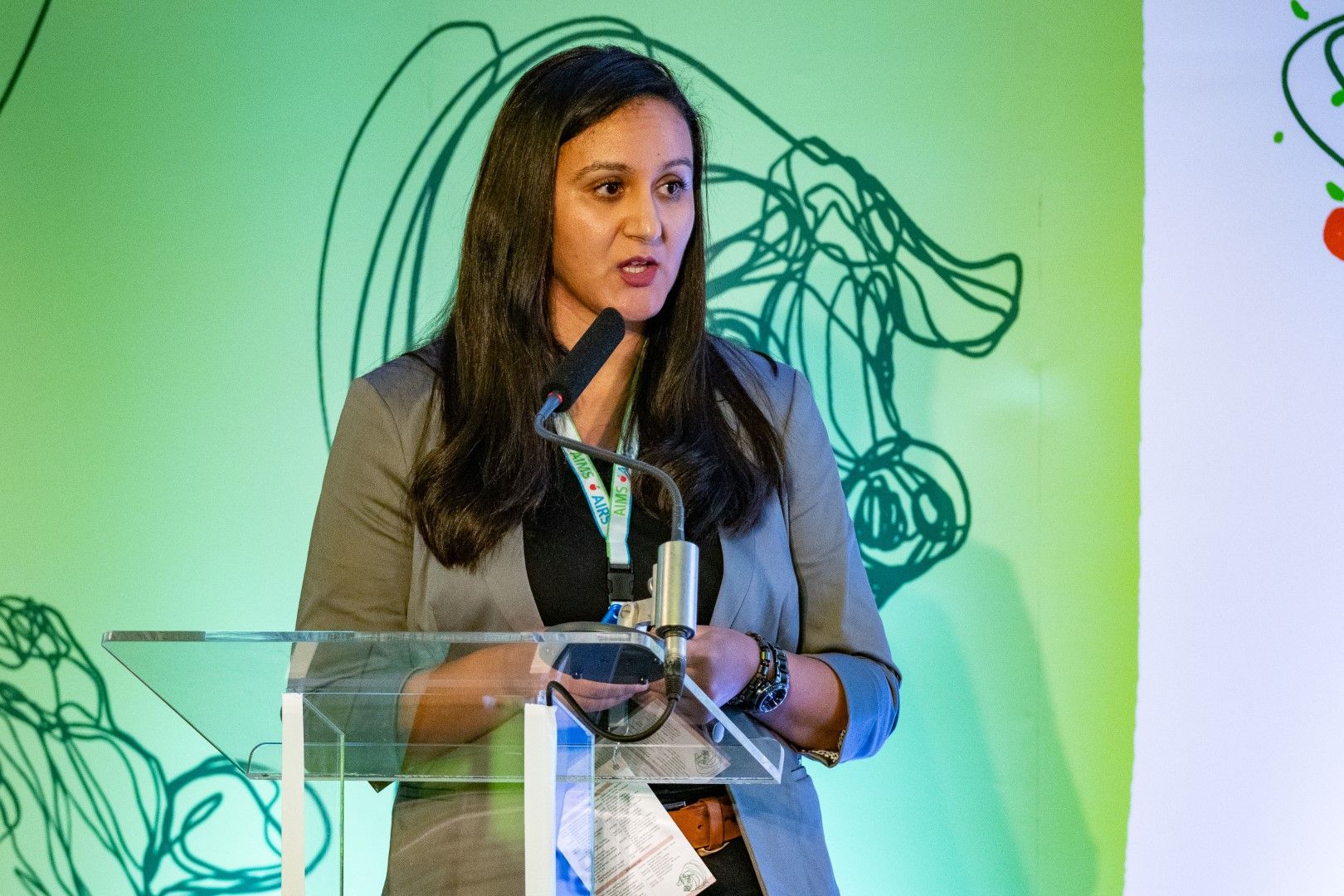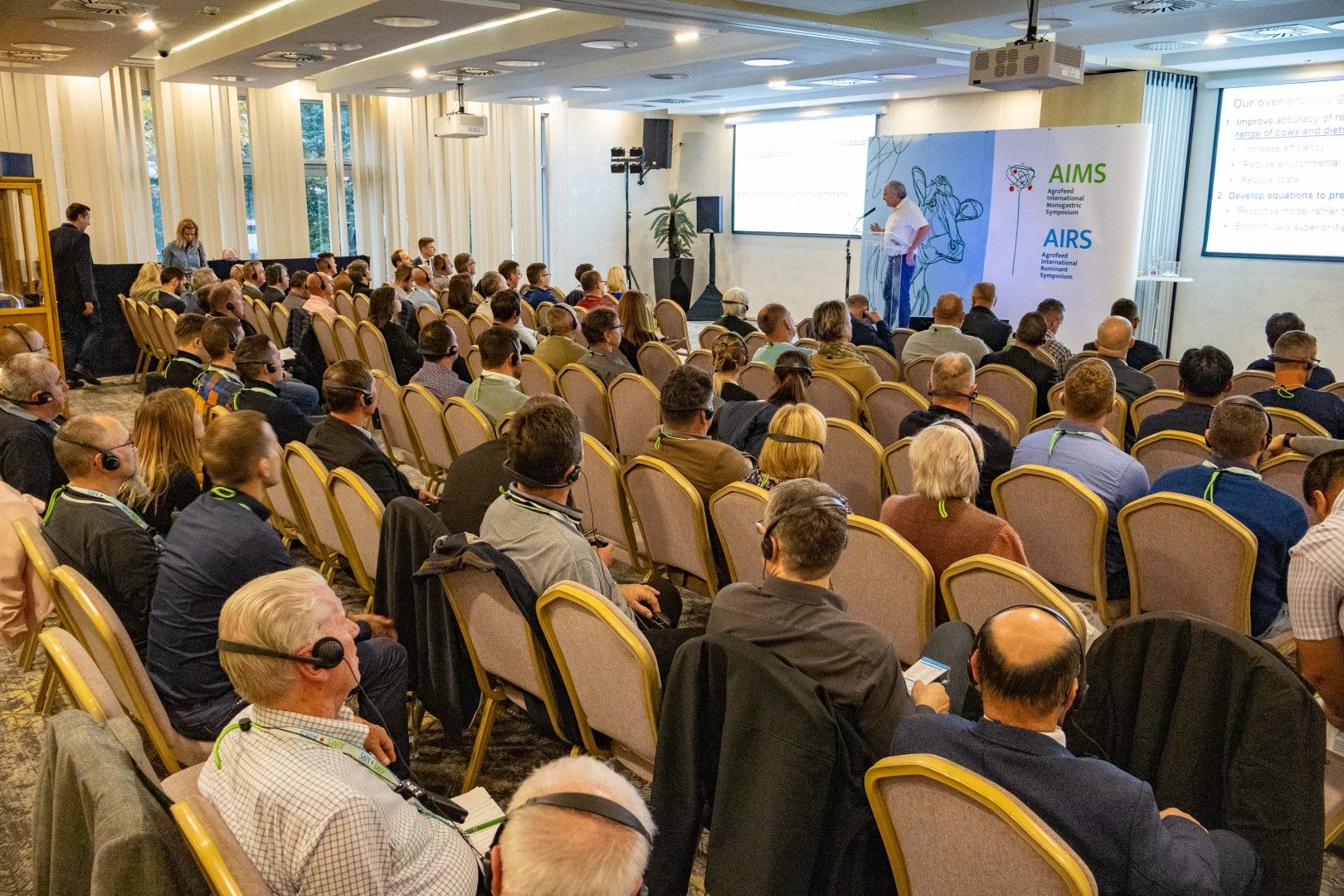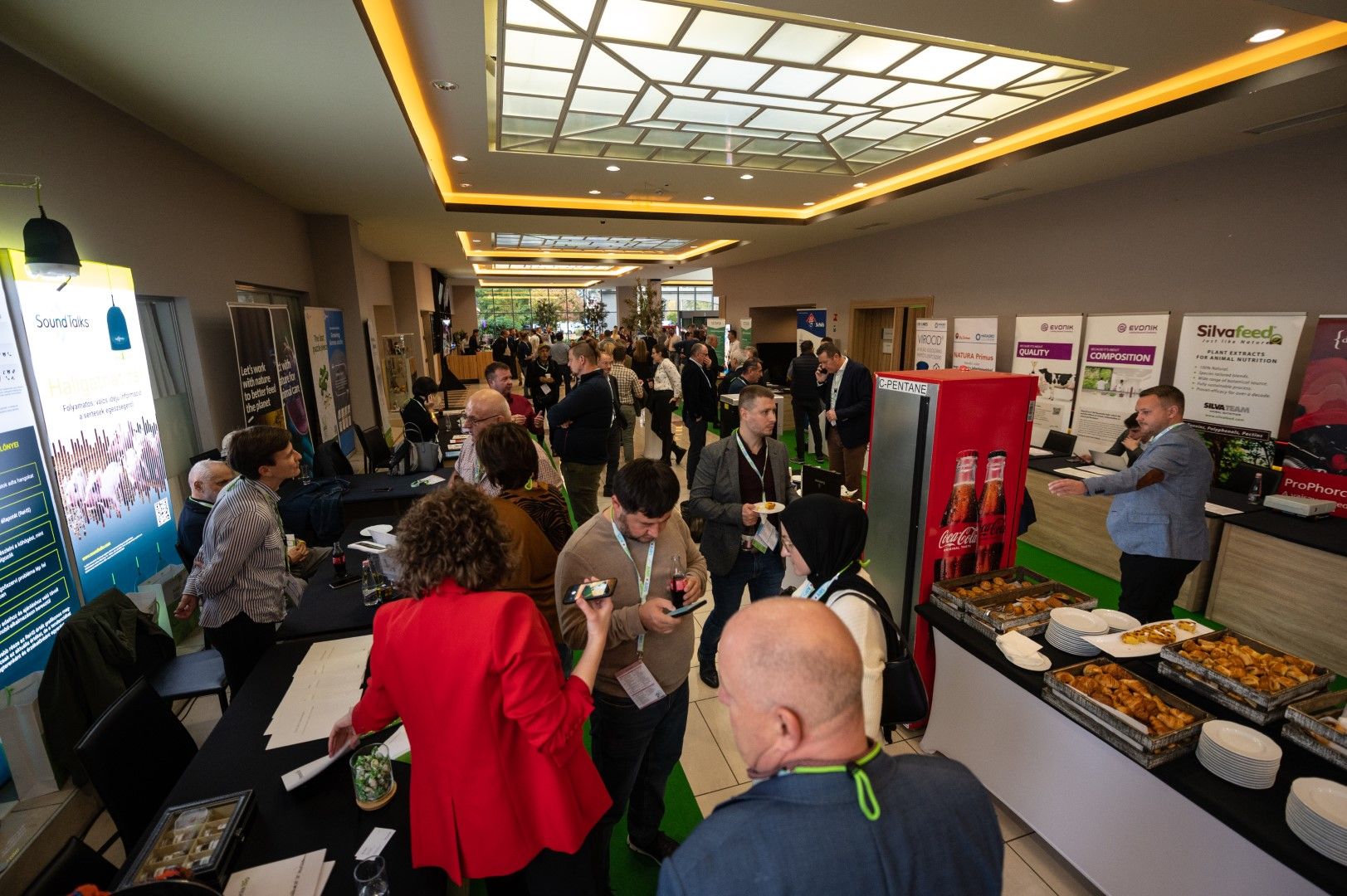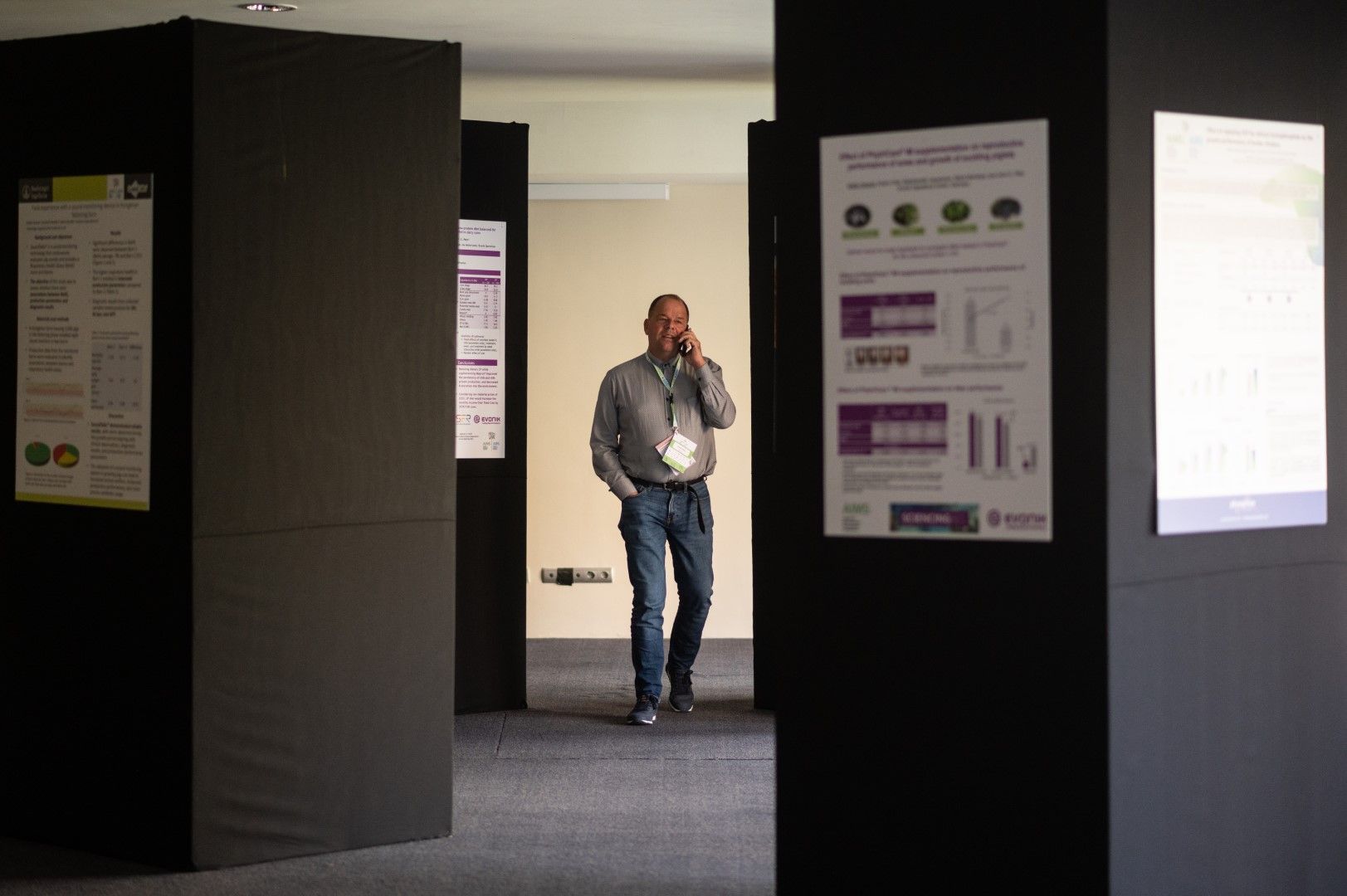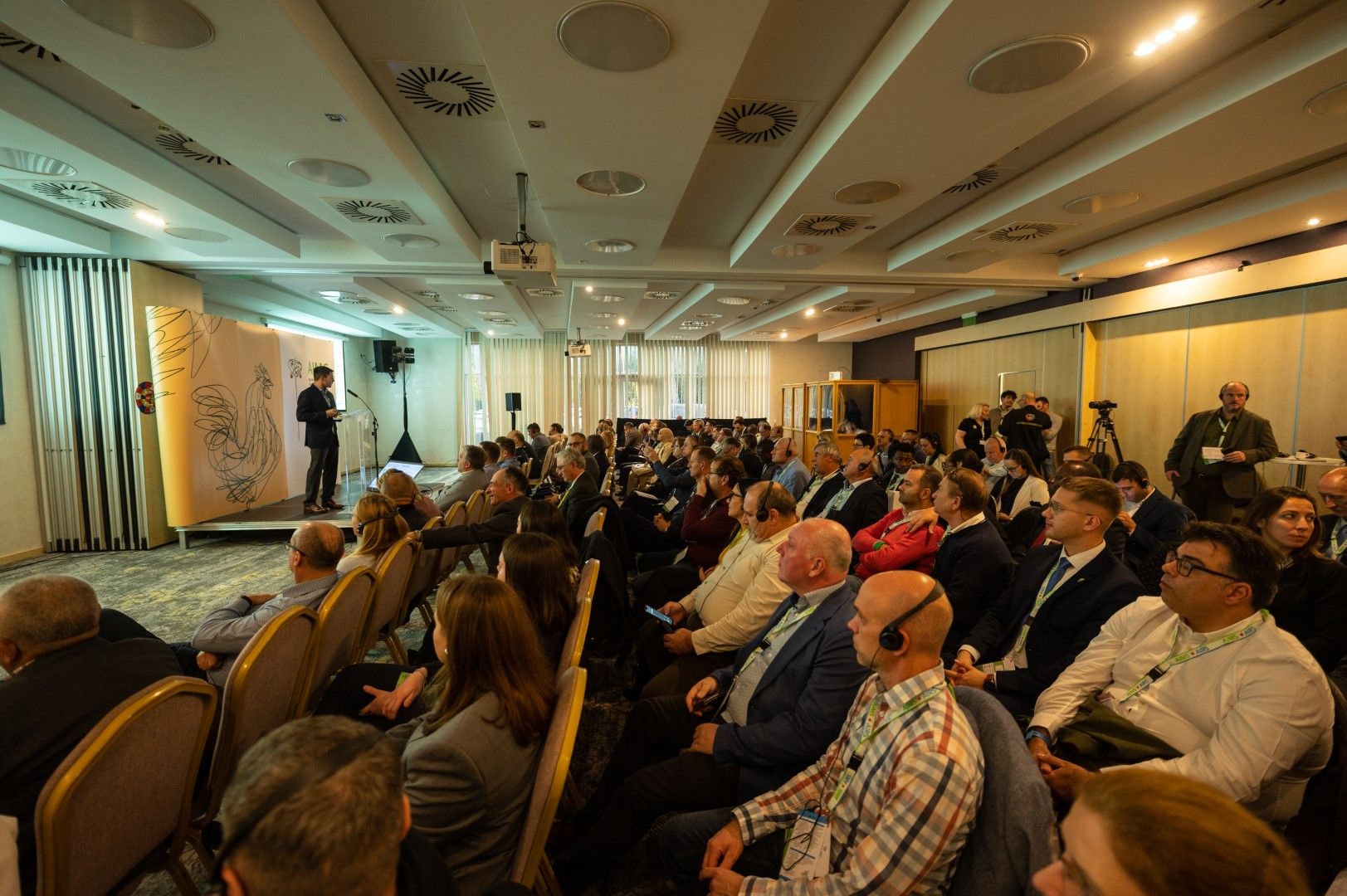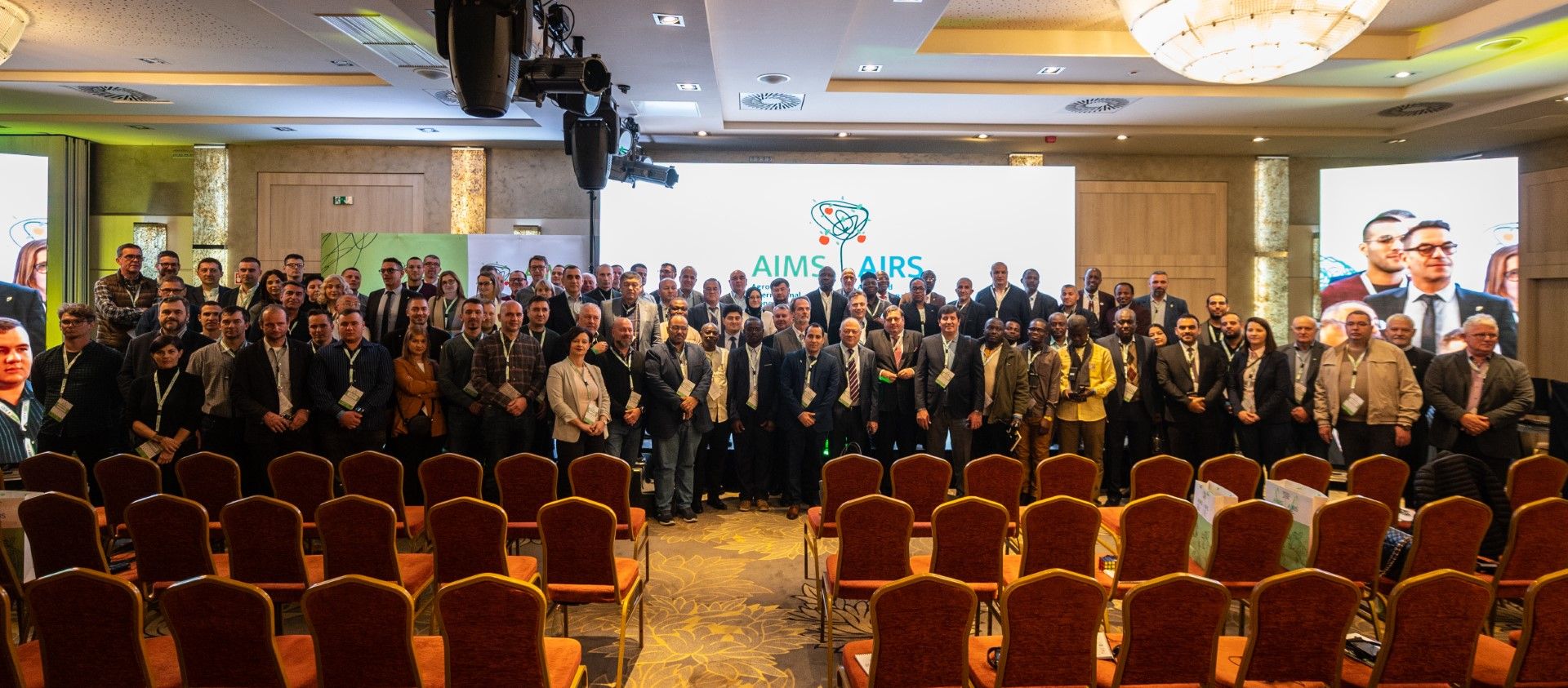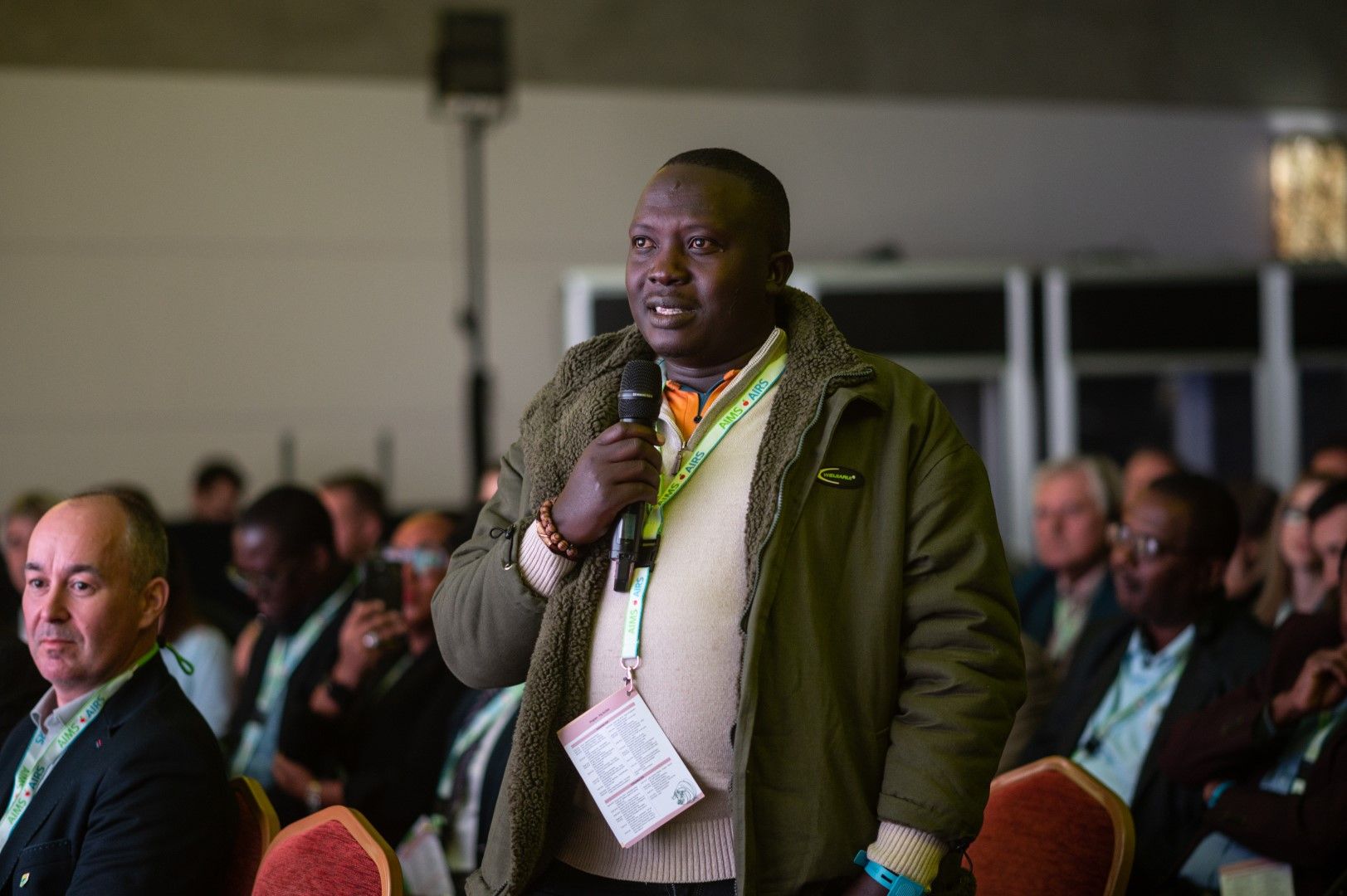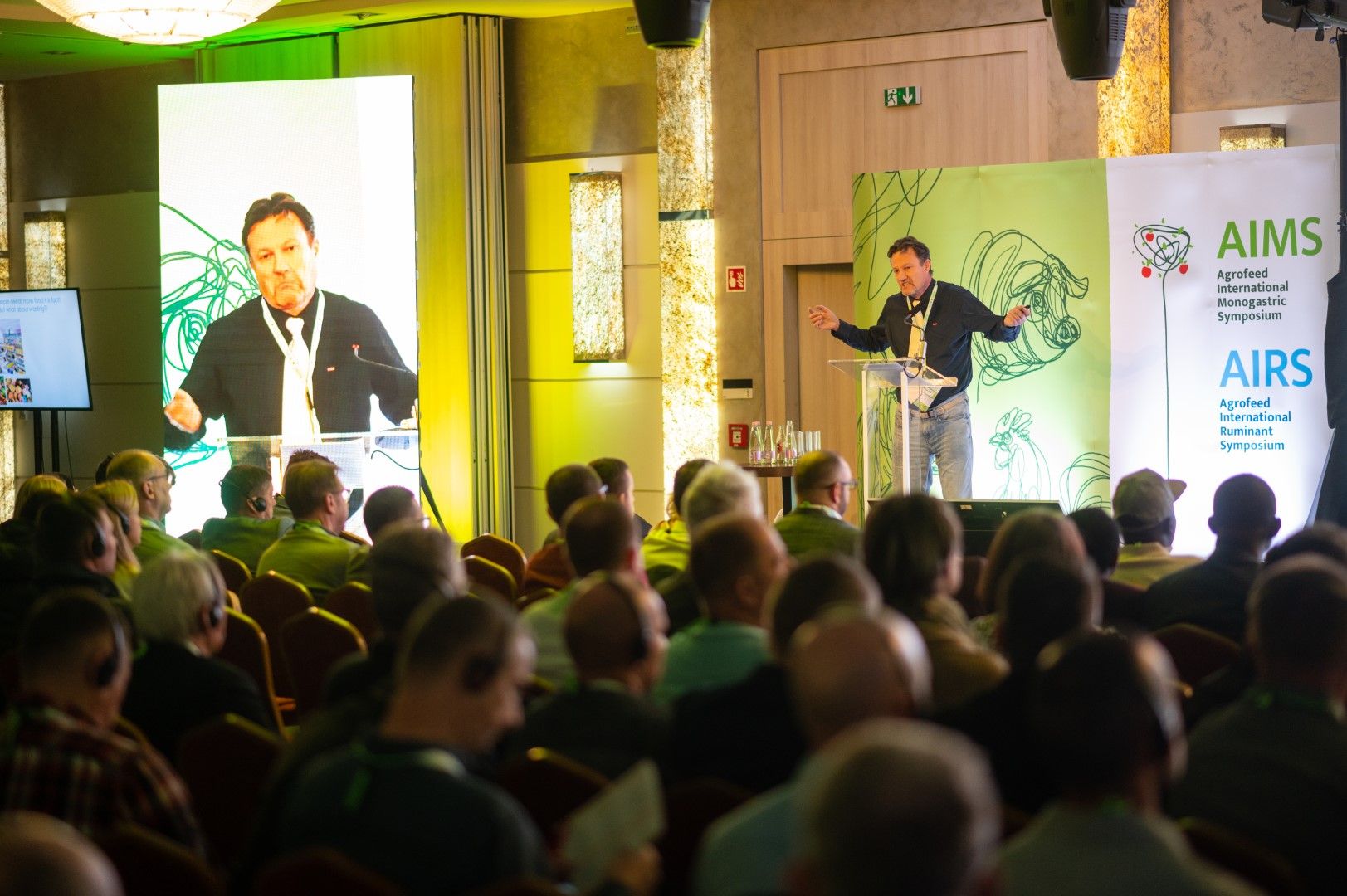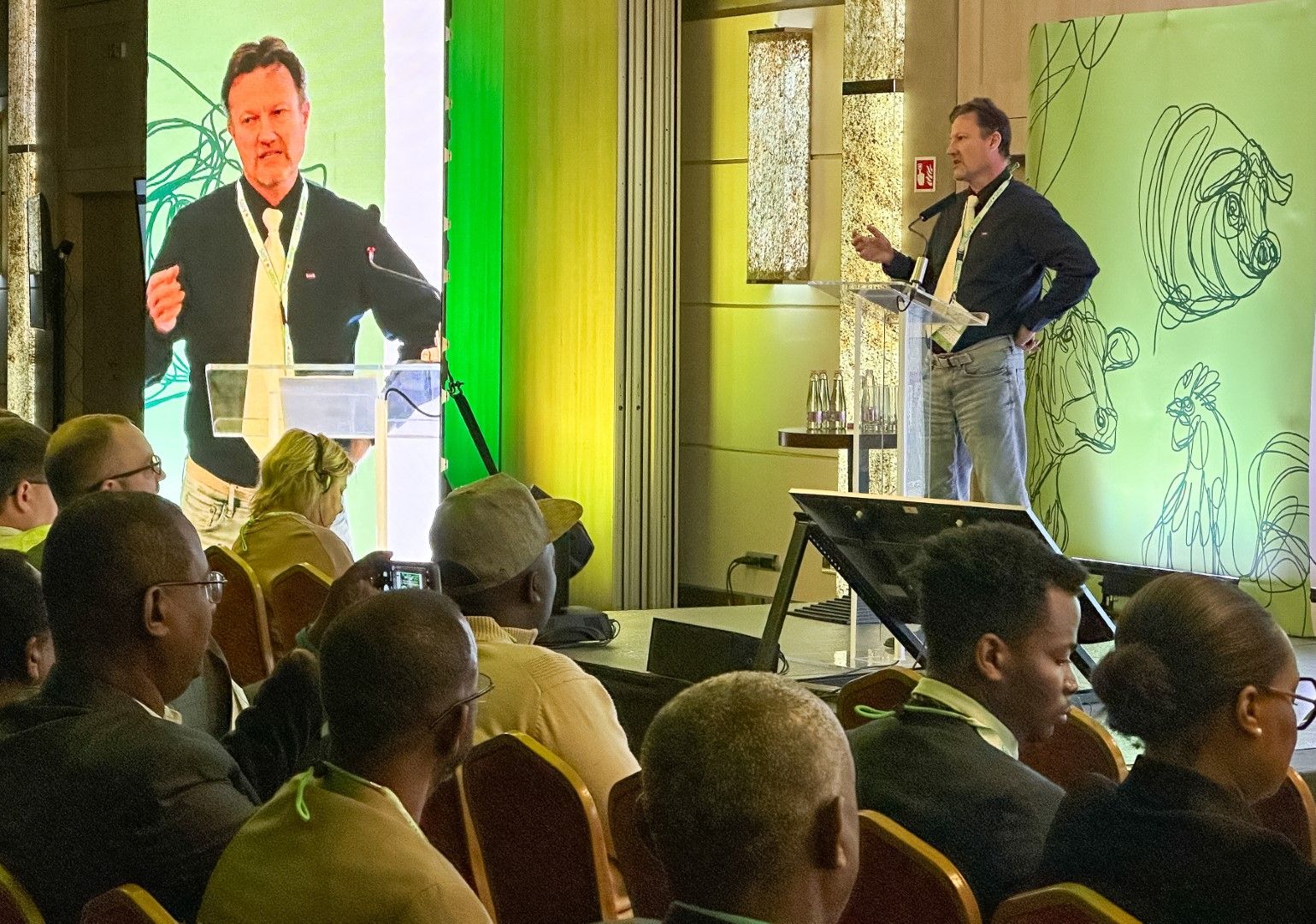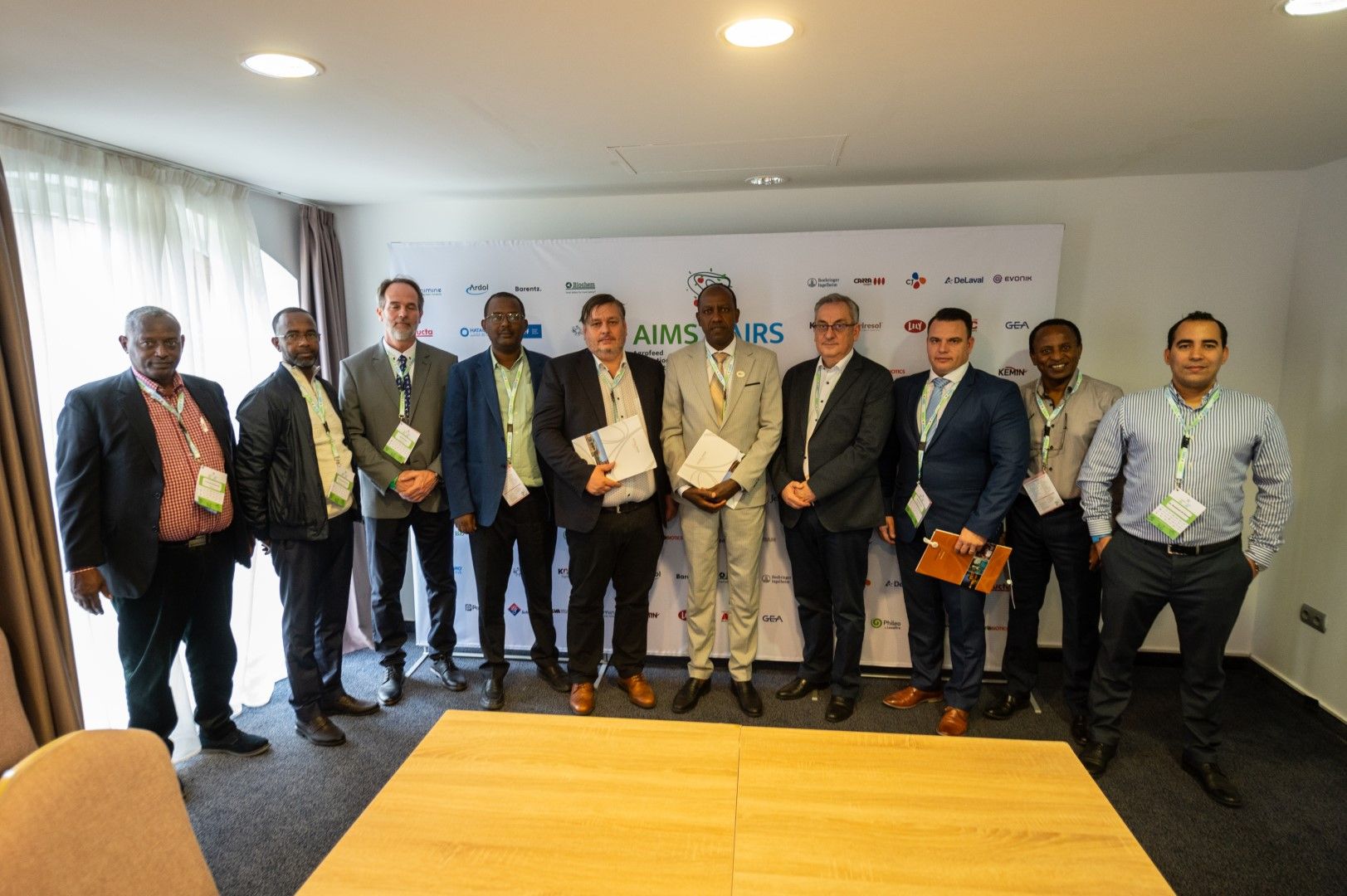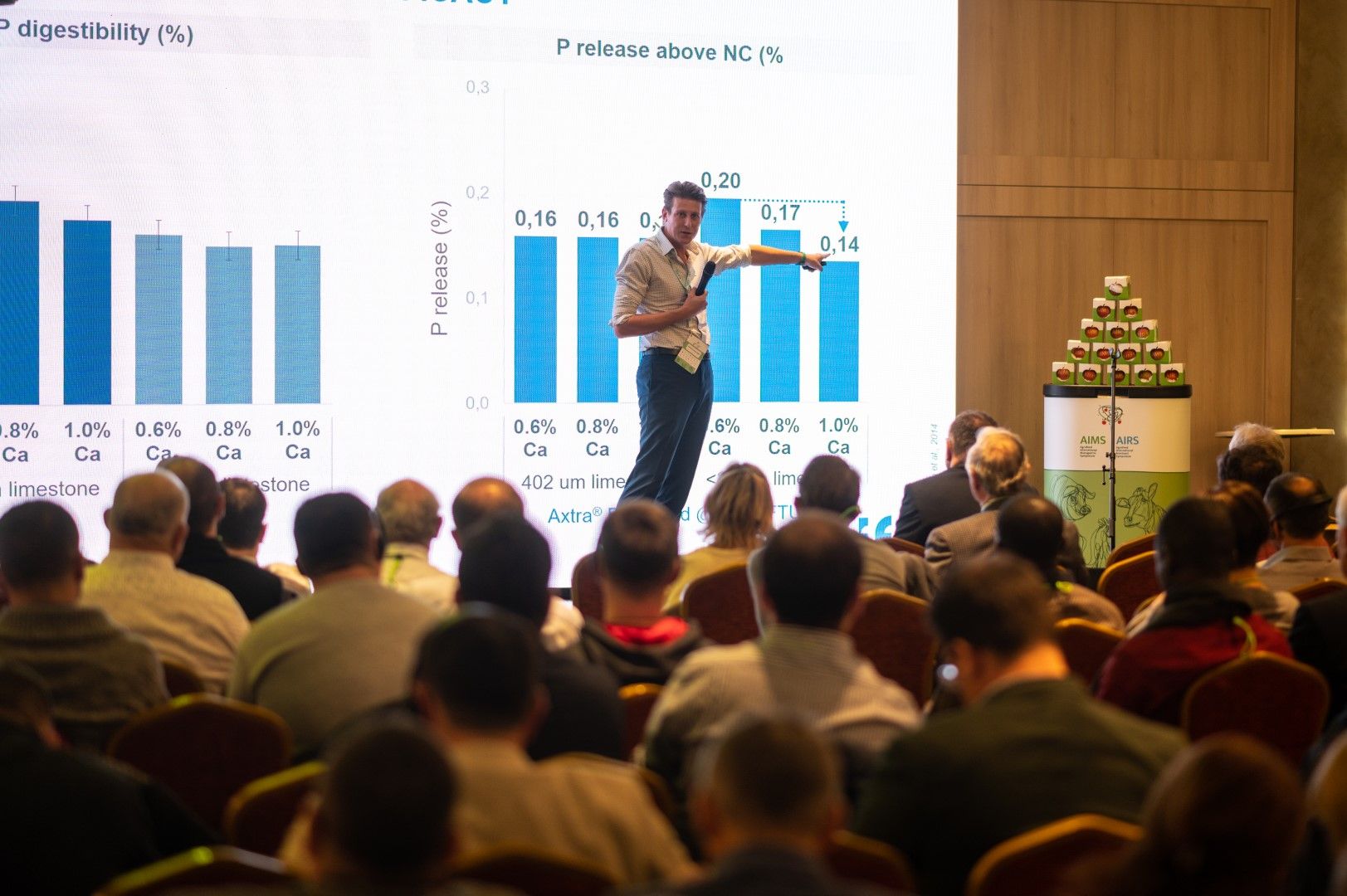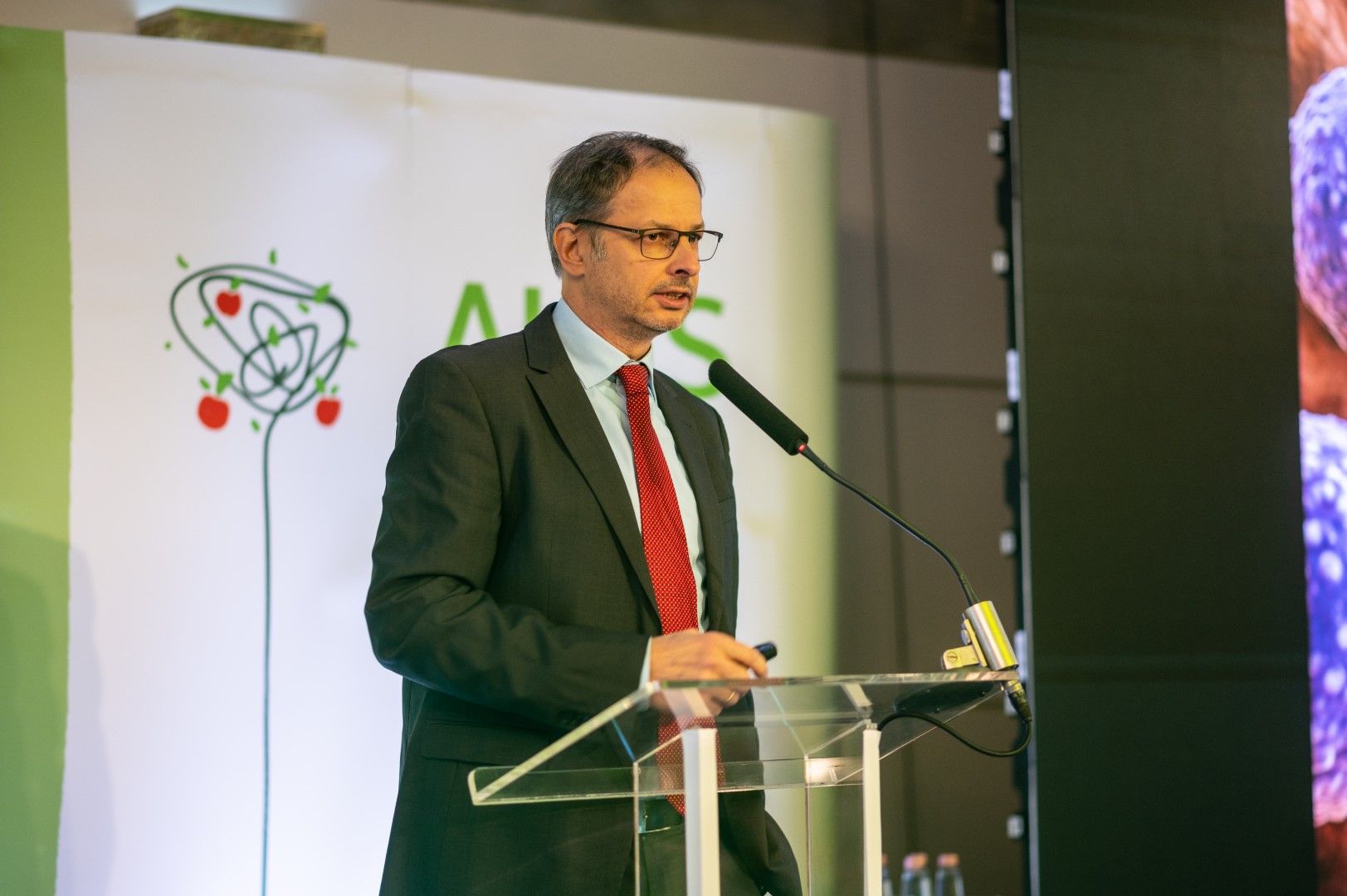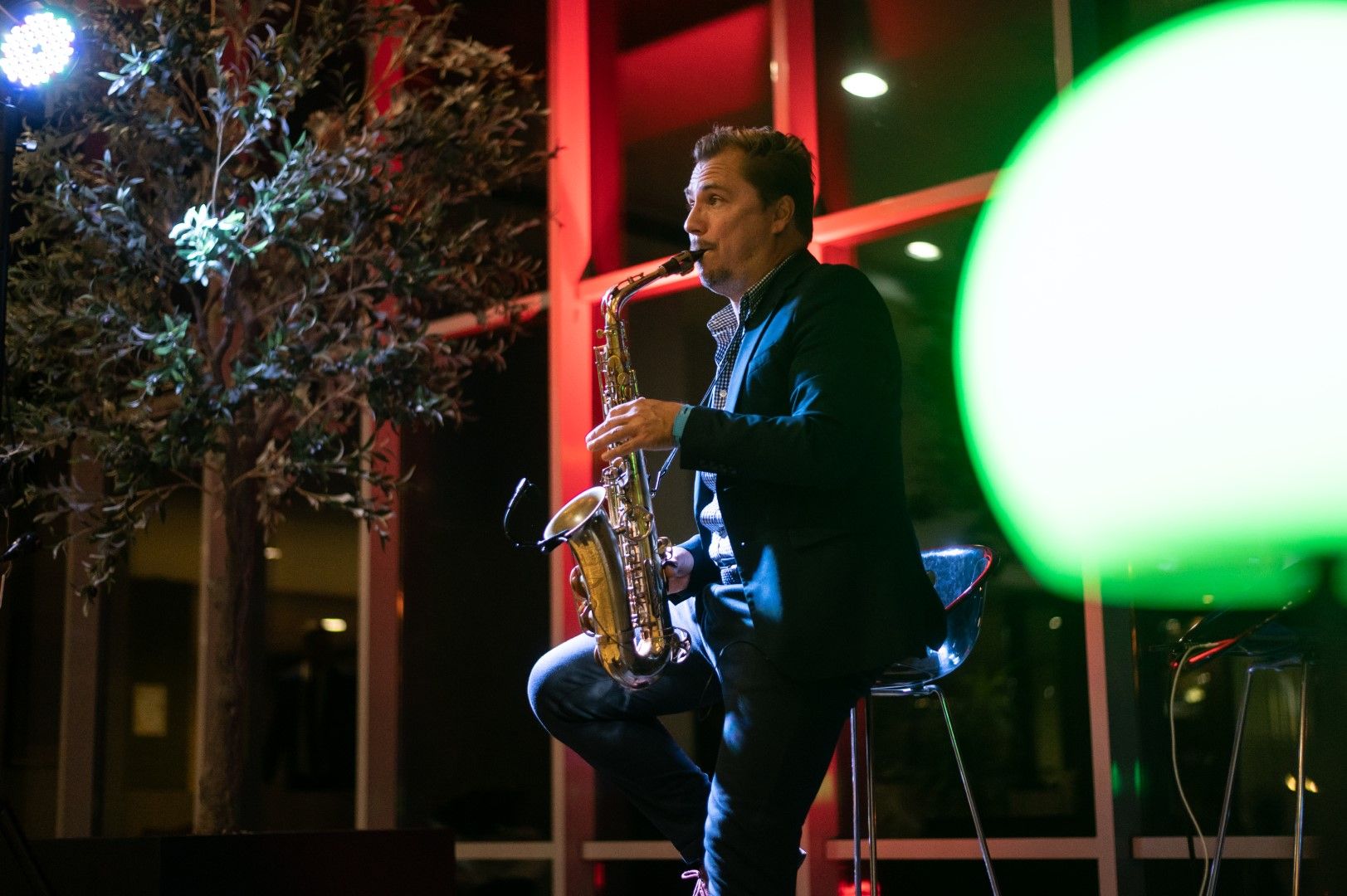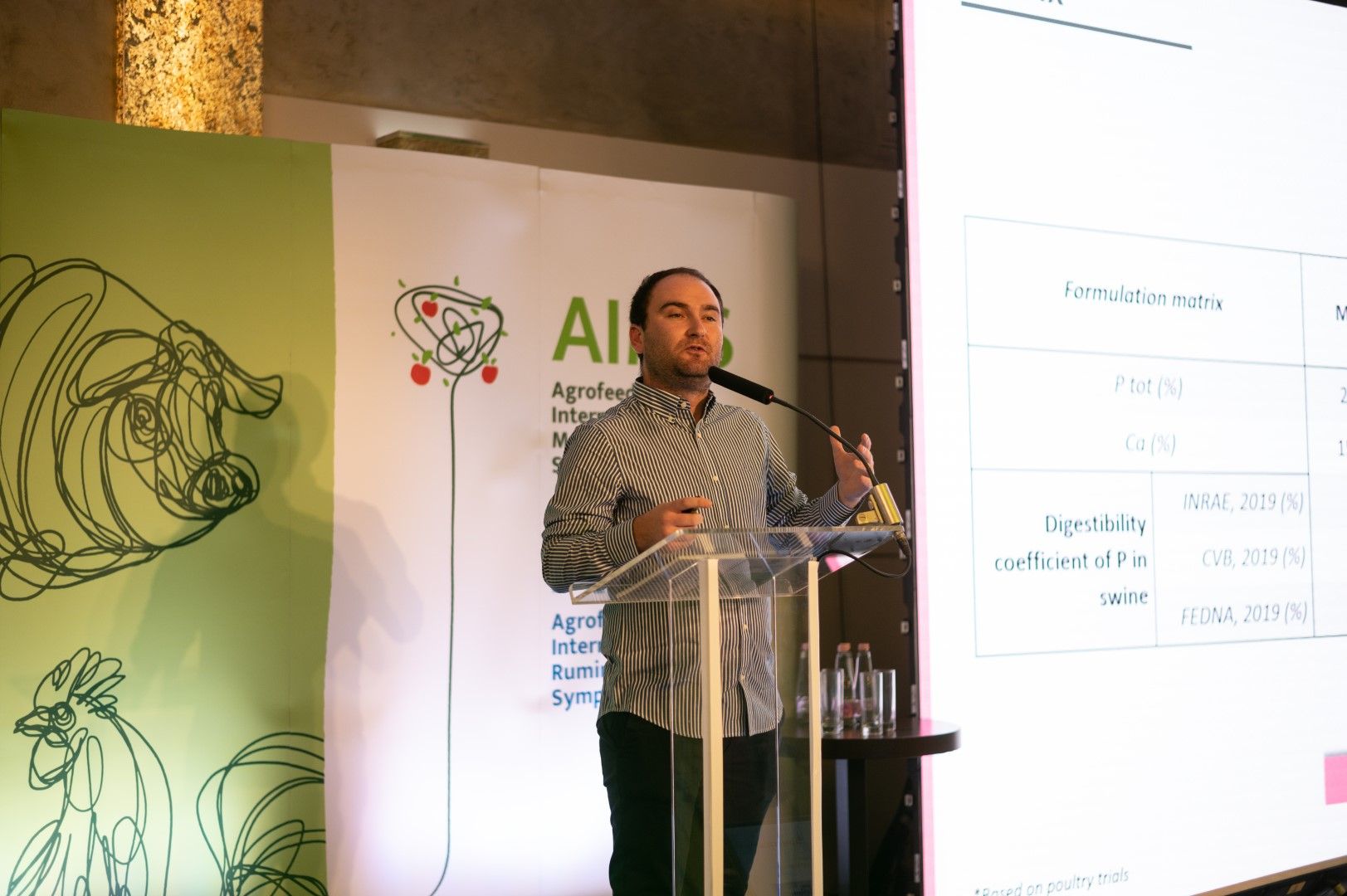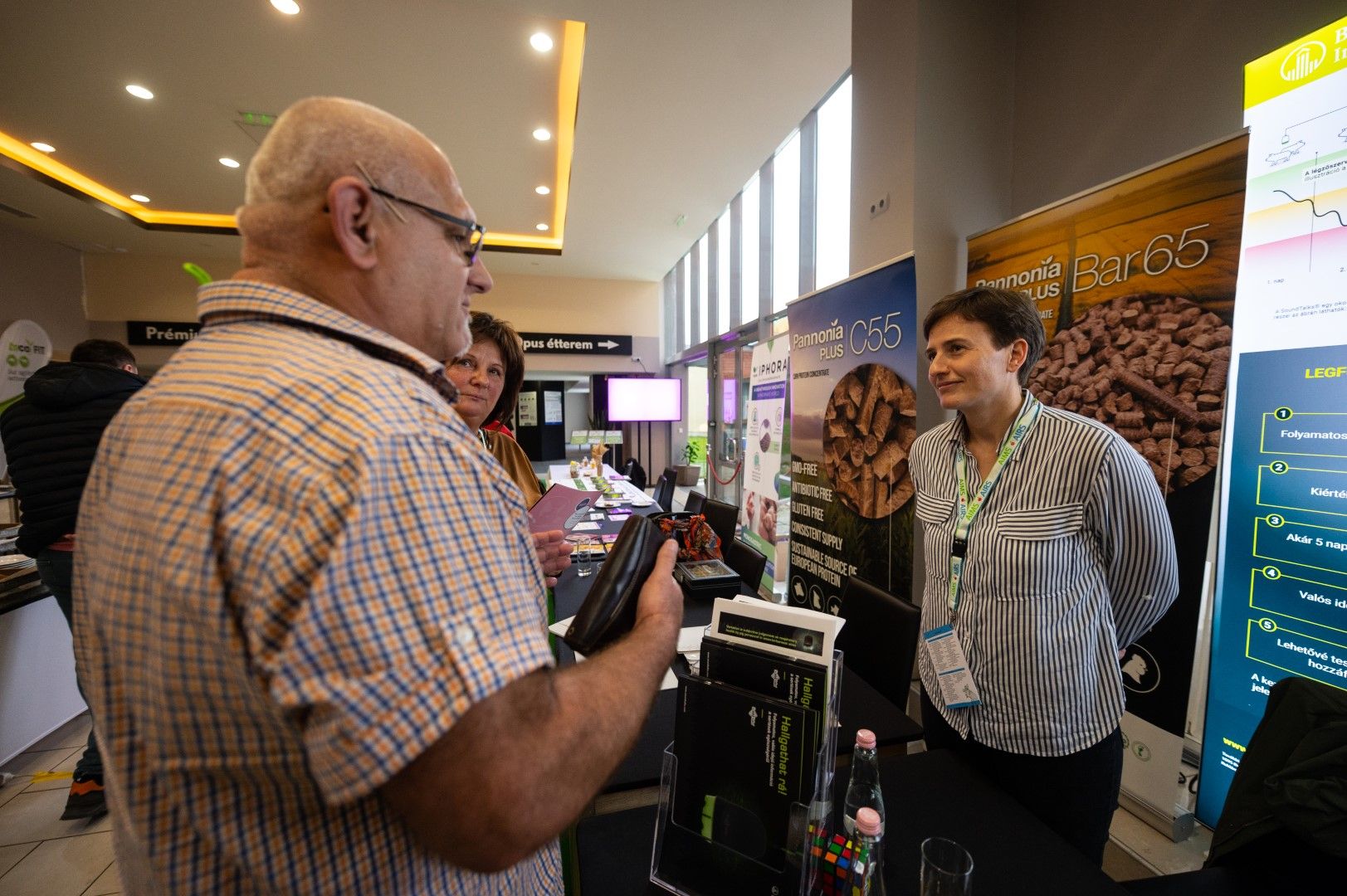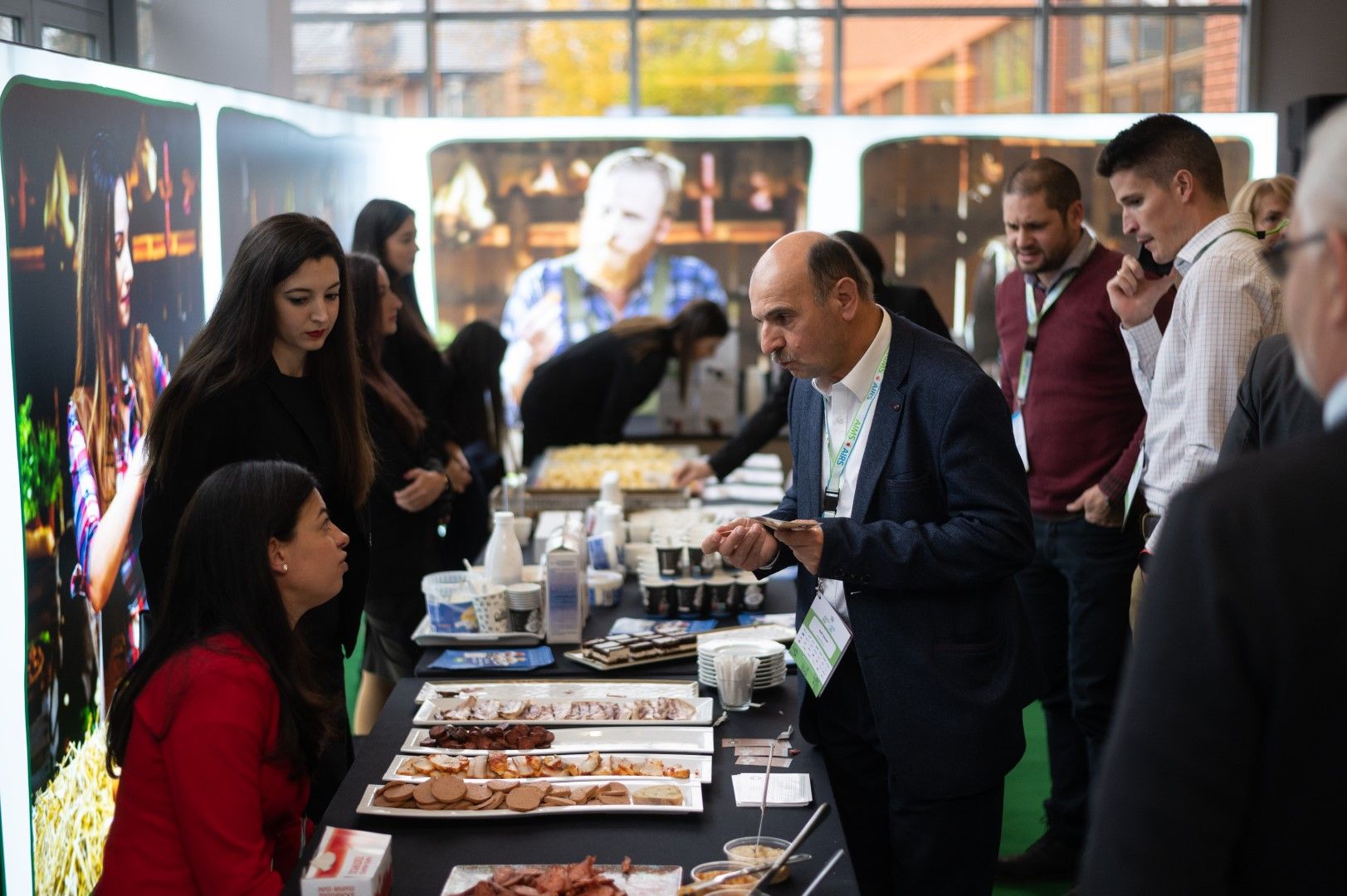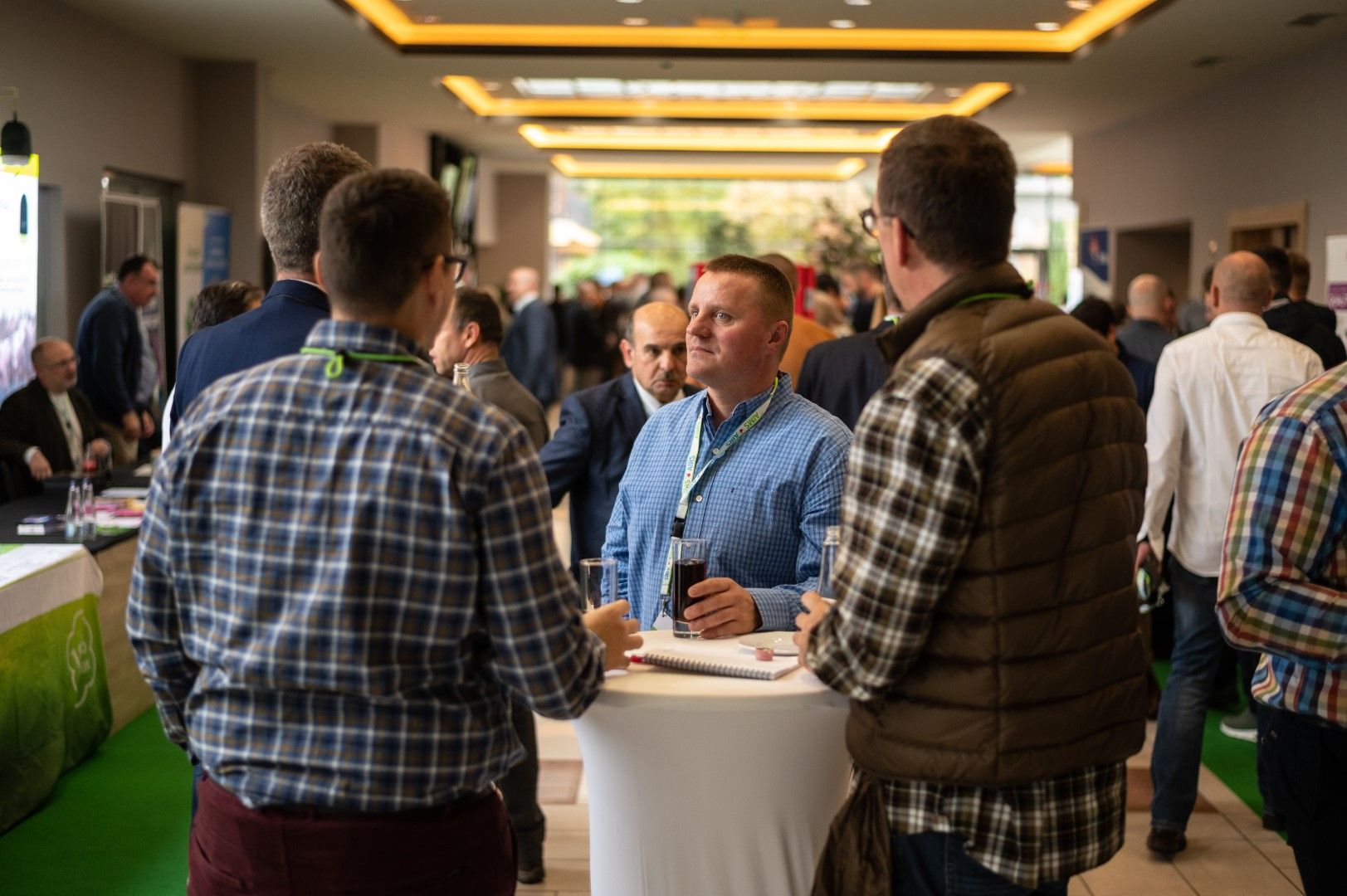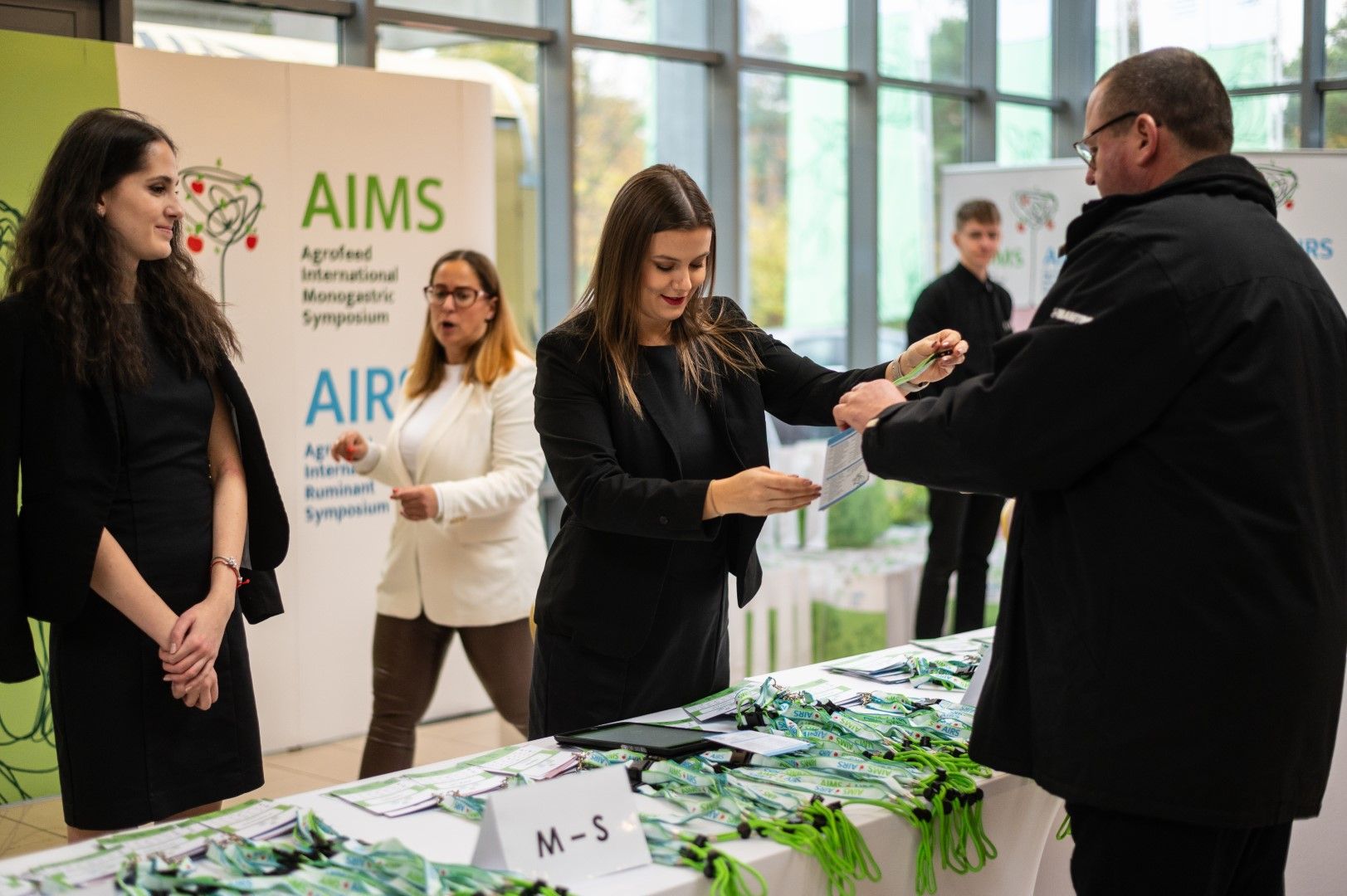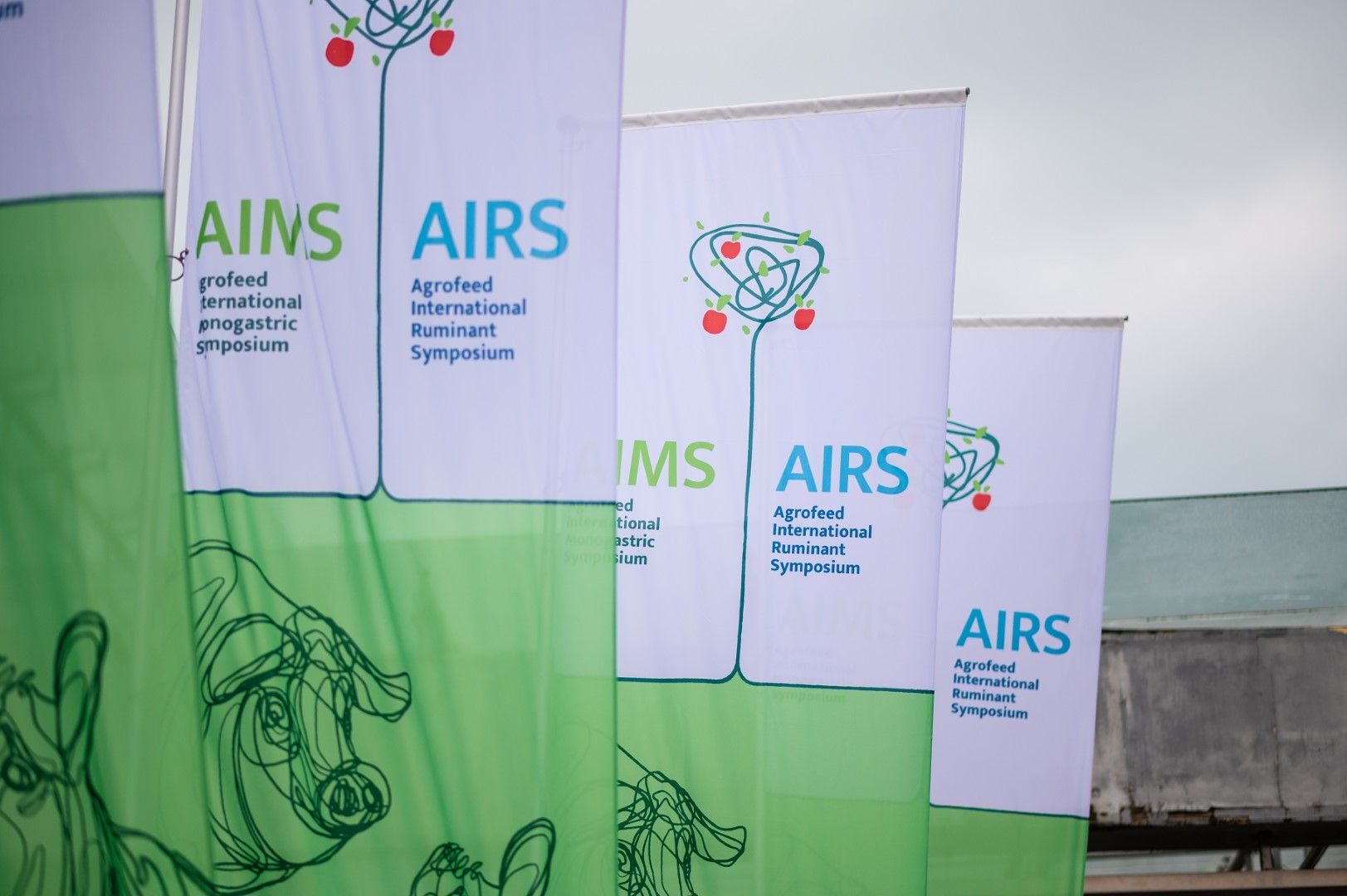
AIMS/AIRS – the largest agricultural conference in Central and Eastern Europe
The largest feeding symposium in Eastern and Central Europe was organized in mid-November,
where Agrofeed Kft. hosted more than 600 participants from 40 countries.
The organizer sought answers to the challenges of modern livestock breeding and feeding, expected
trends and effective solutions. At the two-day conference he presented all of this with sixty lectures,
which represented a high standard at the international level as well. At this year’s conference
separate animal species sections were also created for pig, poultry and ruminants.
The soon-to-be-25-year-old Agrofeed is the leading premix producer in Central and Eastern Europe
with two production bases and a distribution network covering nearly 40 countries. 370 million
broilers, 7,5 million turkeys, 2,6 million breeding poultry, 2,6 million waterfowl, 135 thousand cattle,
160 thousand sows and 5 million fattening pigs are fed.
In the past sixty years, food production has kept pace with population growth and even a welfare
revolution has taken place, said Tibor Csitkovics, the founding owner and managing director of
Agrofeed in his opening speech. The production volume of poultry meat increased by 15,3 times,
pork by almost 5 times, eggs by 6 times and beef by 2,6 times. Thanks to the parallel scientific
revolution, new hybrids and technologies were created, and animal feeding became more modern.
While in 1960, an average of 3,75 kg of feed was needed to produce one kilogram of meat, this has
now decreased to 2,65 kg, and compared to 540 kg of meat sold per sow, it is now 2,2 tons.
“Climate protectionists and animal welfare activists are not aware of how much we have done for
these goals,” emphasized the managing director. While in 1960 0,8 million sows were needed to
produce 1 million tons of meat, currently a third is enough using 30 percent less feed. 60 years ago
645 million chickens produced 1 million tons of meat for which currently 339 million are enough.
The food demand of the Earth’s constantly growing population cannot be met. While 10 percent of
humanity is starving, climate change will make it increasingly challenging to produce the necessary
amount and quality of food. It is necessary to further increase efficiency and improve the type of
feed. This way you can avoid disaster.
How does science contribute to these goals? Dr. Károly Dublecz, head of the department of the
Hungarian University of Agriculture and Life Sciences gave a lecture on the current challenges and
opportunities of feeding livestock. Among other things he emphasized that it is inevitable to
integrate social and environmental protection aspects into production, but he also added: he does
not believe that in any other industry it has been possible to reduce the carbon footprint to the same
extent as in animal husbandry. At the same time food chains will demand that the amount be marked
on the products within the foreseeable future.
While COVID has claimed nearly 5 million victims globally in a few years, antimicrobial resistance
(AMR) may soon be responsible for the premature death of 10 million people in a year emphasized
Dr. Ákos Jerzsele, head of the department of the University of Veterinary Medicine. In addition to
presenting the latest research results, he underlined that this can only be done with global
cooperation and the “one health” principle, that is professionals must work together for the sake of
human, animal and environmental health, since each area affects the other.
Dr. Gábor Kardos, SOTE employee, presented research on the appearance of multiresistant
pathogens in natural waters and wild animals, emphasizing how these extremely dangerous
pathogens are able to pass from one living organism to another thanks to their genetic properties.
If animal husbandry wants to meet the requirements of environmental sustainability, but consumers
are not willing to pay the costs then there is nothing left but to increase efficiency, which must be
accompanied by communication, information and education at the societal level. Among other
things, Dr. Zoltán Pachinger, agricultural consultant, drew attention to this, and he gave a lecture
entitled “Green and sustainable revolution versus economical food production”.
Alpár Botond, head of research and development, presented tests related to the feed products of
Agrofeed, which were developed using domestically available raw materials and fermented with an
innovative process. Among other things he emphasized that the process can be applied to any feed
plant and the result is a product that contributes cost-effectively to better digestion and nutrient
absorption.
Based on the feedback, it can be stated: there is a need for professional conferences of this kind, so
Agrofeed is already planning the organization of the next AIMS/AIRS symposium!
